Chapter VII
The Poorhouse
We are not rich by what we possess but by what we can do without.
Immanuel Kant
As the refugees began to move south from their camps to Baden-Württemberg, pressure was building on the local inhabitants to make room for their ‘brothers and sisters’ from the eastern provinces. Soon accommodation became very scarce. It consisted of space directly under the roof or some other primitive living quarters often without heat, electricity or water. Upon arrival in Rohrdorf, local officials assigned to our family one of these dingy places. I have no memory about my physical surroundings. But I had once a very vivid dream. In it I saw surrealistic images, in which space and its objects appeared grotesquely distorted. The assembly of the tableau consisted of bird-like creatures, men with birds’ heads strutting around with long beaks. There were strangely shaped sculptures, stone blocks with holes in them that looked like empty eye sockets. It seemed that the dream had broken all the laws of physics and all the rules of perspective in art in this contorted display of a chaotic world. When I woke up most likely from hunger pangs, I could not connect anything I saw in my dream to the real world around me. Could this have been an archetypical experience? Or did I sense as a child that the struggle for survival in a broken world was not over yet? It is impossible for me to tell. But the phantasmagoric imagery and the bewildering impact it exerted on me remained. Much later in life, when I was looking at abstract art, especially the sort that is known as surrealism, I encountered a few paintings that revealed an uncanny resemblance to my early childhood dream.
Our next dwelling in Rohrdorf was located in the lower village not far from the intersection of two highways, one leading to Sigmaringen, the other one where our house was located to Castle Wildenstein. We lived on the second floor with access to the attic space. We called the place Armenhaus, ‘Poorhouse’, because in comparison with the stately mansion in Gutfelde it was a dark and uncomfortable place, too small for our seven family members. Downstairs on the ground floor lived the owner with his ailing mother and at least a dozen cats. He loved them dearly, but for the Klopp’s they were always slinking in and around the house and were occupying every nook and cranny as if they owned the place.
The winter of 1947 was one of the severest in recent memory. All of Europe suffered under its icy grip. Even England, which usually enjoys a temperate climate, experienced extremely cold temperatures and massive snowfalls blanketing the entire country. Gigantic snowdrifts completely cut off Rohrdorf from the neighboring town of Meßkirch. Food had become so scarce at the Klopp family that we had to resort to begging. The local farmers, who had suffered the least during the war and had plenty of food on the table, were reluctant to help their fellow German citizens whom they considered with suspicion like intruders, almost like foreigners. True, we did not speak their southern dialect and belonged to the ‘wrong’ faith. Most of us were protestants, not Catholic. In short, we were outsiders, who did not belong. To avoid confrontations with the people in Rohrdorf and to protect the family from feelings of shame and disgrace, we often went begging in a neighboring village, where people would not recognize us. Being only five years old, always hungry and looking hungry, the family thought that I would be the best candidate to move hearts, especially those of kind-hearted women. One day I entered the yard of a farmhouse alone, while everyone else was hiding in the background. I walked up the steps. With some trepidation I knocked at the front door. Farmers had chased me away empty handed before. To add injury to insult, they had even hurled abusive language at me. After a long wait and repeated knocking, the door opened just a crack, and a gruff voice demanded to know, “Wa’ wit’?”, a hackneyed version of standard German, “Was willst du?”, meaning “What do you want?”
With all the strength at my disposal I replied, “ I’m sooooo hungry!” The man was just about to slam the door shut on me, when I heard the farmer’s wife ask, “Who is at the door?”
“Just a lousy refugee kid asking for grub!”
“Let him enter. I will take care of him.” Reluctantly he let me come in into the warm and cozy entrance hall and stepped aside, as his wife welcomed me with a motherly smile. She just took one glace at me and knew what my problem was. Before I could even say a second time, “I’m sooooo hungry!”, she rushed to the kitchen. I will never forget the moment when she placed a loaf of bread into my outstretched hands. But what is even more important than bread that is baked today and eaten tomorrow, is this kind of love, kindness and compassion that breaks down the walls of prejudice, bigotry and hatred, which people erect to protect their selfish comfort zone.
Mother’s guiding principle was the proverb: Necessity is the mother of invention. She was very resourceful and creative, when it came to providing a little more variety and nutritional value to our meals. It was in the wonderful month of May, when life began to stir. Among the budding trees the most amazing ones to show off vigor and zest are the conifers. First they display tiny brown buds. Slowly they swell, and then their papery brown covering falls away in wind and rain. Mother still remembered some old time-honored recipes she must have learned at Grandmother’s home in Grünewald. She asked us to get out into the woods and gather these limey-colored buds with their tantalizing scent. I had no idea what Mother would do with them. I had seen stranger things than spruce and fir needles on the dinner table. However her plan was to make a simple syrup that we could put on bread and pancakes. We had lots of fun gathering the needles according Mother’s strict instructions: to harvest only the young and tender tips. Little did I know how Mother would turn the fresh needles into syrup. But I remember the fragrance permeating the entire house, while she made the honey-like syrup in the kitchen. So for the reader interested in trying out the recipe here is what I discovered online:
1 cup of spring fir, hemlock or spruce tips
1 cup of water
1 cup of sugar (demerara, turbinado, white sugar)
Place the tree tips in an 8-ounce glass container. Cover with water, close lid and place in a warm place (preferably in the sun). Strain and place the liquid in a small sauce pan. Add sugar, turn on medium heat and stir constantly until the sugar is dissolved. Place in a glass jar and keep refrigerated. This syrup will last several weeks. Demerara is a natural brown sugar and turbinado is raw sugar. These both have a richer and more complex flavor but white sugar will work fine too.
Since there was no Kindergarten in the Rohrdorf Elementary School, my parents sent me to the one set up by the Catholic Church. There I felt very much at home. Friendly nuns would provide a happy mix of schooling and religious instruction. Playing with the local children of my own age, I quickly learned to converse perfectly in the southern dialect and soon became indistinguishable from the other boys and girls. The teachers within the context of play and learning introduced us to the creative world of music, poetry and drama.
I really liked to recite the poems at home with great enthusiasm, which was only dampened by the constant teasing of my older siblings. I remember distinctly a particularly colorful poem that described the reddening of the evening sky and compared it with flickering flames in a fireplace. My brothers delighted in my heart-felt protests, when they deliberately changed the lines of the poem I was reciting.
At Christmas time the Church planned a concert for the community. Of course, a Christmas concert to be complete must include a Nativity play. Having shown quite early an interest and talent in acting, I was very proud that I was selected for the role of Joseph in the Christmas pageant. What I owe the most to my early childhood education, is that under the nurturing direction of the nuns I developed a liking for singing. Music for me became a liberating force for the soul.
One dark and dreary evening I was all by myself. Nobody was at home. In those days there were no laws ensuring that children under the age of ten be attended at all times. The use of babysitters to protect such children from potential harm was virtually unknown. Mother had tucked me in and had said good night. Perhaps she waited a little longer at the door, until she thought that I had fallen asleep. But I hadn’t. When all was dead quiet in the house, the same feeling of abandonment overcame me just like the year before at the railway station. As twilight turned into complete darkness, I could only see what my fear-driven imagination would conjure up in my mind. A monster ready to devour me was lurking behind the closed door and a wolf with bared teeth sat somewhere in the shapeless room preparing to pounce on me at any moment. The fear of the unknown was growing more and more intense. I lay almost paralyzed in my bed hardly able to move. Suddenly a tiny light began to shine within my frightened inner being. It was very weak at first, then fed by happy memories at the Kindergarten class it became much brighter and started to dispel the terror of those awful beasts that my tormented imagination had engendered. Comforting words, lines, verses and finally entire songs emerged from deep inside me. They put my mind gradually at ease. Picking up courage I sat up, opened my mouth and began to sing. I sang all the beautiful songs I had learned during the past couple of months. And the more I sang and the more I raised my voice, I knew that by doing so I chased away those scary creatures of my own making. Most of the songs were hymns steeped in the Roman Catholic faith intended to provide comfort and were composed especially for little children. The melody and the lyrics made me forget my anguish and created so much joy that I kept on singing, until my family returned from whatever social engagement they had attended to. They believed that I was a very happy boy that evening. Only I knew, how mistaken they were. I had fought a big battle that night and won in the end with the spiritual help of the comforting words and songs I had learned at Kindergarten.
The farmers in Rohrdorf were relatively poor. But they were much ahead of their time by practicing what we now call organic farming methods. Their farmhouse was located in the village and their small fields often less than one ha in size were scattered in the outlying areas. With each plowing, rocks emerged from below the surface and needed to be picked up. Owning horses for pulling farm equipment was a luxury in this impoverished region between the River Danube and Lake Constance. Most farmers used cows for pulling their wagons and plows. Yet, they also expected them to give plenty of milk in the morning. Cow-barn and residence were located under the same roof. A giant manure pile decorated the front of the house right next to the stairway leading up to the main entrance. Conveniently the kitchen was right above the manure pile, so the farmer’s wife merely had to throw kitchen scraps and other organic refuse out of the window. Above the cow-barn the farmer stored hay for fodder and straw for the cows to rest on during the night. The architecture of the entire building was designed to save manual labor. During the winter months the farmer would simply take his pitchfork and throw down the hay into the long trough. From the rear end of the animals the cow pads mixed with straw would go directly onto the manure pile, while the urine would flow freely down the gutter into the holding tank outside the building. Nothing, absolutely nothing was wasted here. Well-rotted manure and aged slurry went back to the fields to revitalize the soil.
At one of these farmhouses I was playing all by myself one day. I cannot remember what attracted me. To be sure, it was not the pungent smell or the questionable beauty of the manure pile. Spurred on by my childlike curiosity, I was simply exploring a place that was new to me. Boundaries have no meaning to little children. Trespassing is a foreign concept to them. As I was walking around, I stepped on the lid that did not completely close the opening of the holding tank. All of a sudden the lid tipped under the weight of my body. I lost my balance and slipped into the deep, smelly slurry underneath. Panic-driven I frantically thrashed around to keep at least my head above the smelly liquid. In vain I looked for a foothold or at least something to cling to with my hands. But there was nothing but the slippery, slimy wall surface. Soon I began to tire. I found it harder and harder to stay afloat.
The little light that had penetrated the darkness before suddenly grew dimmer. I could no longer see the walls. It seemed I was losing consciousness. Did the toxic fumes make me mercifully lose consciousness, before I would drown? Just as I was beginning to submerge in the infernal soup, I felt a strong grip at one arm, then on the other. I was no longer sinking, but going up instead. Centimeter by centimeter my body was dragged by an invisible force higher and higher towards fresh air, sunshine and life. With a thump I landed on firm ground and after I recovered a little, I looked at my rescuer’s smiling face. One of the older Pröbstel boys had heard the clang of the lid and saw me fall into the holding tank. It would have been my certain death, had he not acted immediately. The miracle of my rescue appears even greater to me now, when I consider that by chance the holding tank was filled almost to the top. For otherwise the boy would not been able to reach me.
I learned to ride a bicycle under somewhat unpleasant circumstances. One day my brother Karl lifted me up onto the saddle of his rather tall bicycle. I was all excited. Indeed I was very eager to experience the freedom of moving about on two wheels. My legs were barely long enough for my feet to reach the pedals. While Karl was holding the luggage rack to keep the bike in an upright position, I began to pedal and managed to gradually build up speed. Every once in a while my brother let go of the rack just for a few seconds to give me the feeling of the relationship between speed and balance. Under his caring guidance I was able to ride the bike independently for longer and longer stretches, until I had developed enough confidence to break from Karl’s helping hands. I pedaled so fast that I soon left him far behind. I was on my own now experiencing the exhilaration of traveling on two wheels. I was on that straight level stretch between the ‘Poorhouse’ and the public fountain at the junction.
However, there was one problem. I had not yet learned to make a u-turn and what was worse I did not know how to stop the bike without falling and hurting myself. This meant that I was unable to turn around and get back to Karl who could assist me getting off the bike. The exhilarating sensation suddenly gave way first to mild anxiety, then to full-blown panic, as I realized that the only way to prevent a painful crash on the paved highway was to keep on pedaling. So I did, until after a few more minutes exhaustion set in and I could no longer move the bicycle fast enough to keep my balance. Fortunately, as the bike was just ready to fall on its side, I steered it into the ditch and thus avoided at least a major injury. If this had been a lady’s bike without that scary crossbar, I would have been all right. Roughed up a little in body and spirit I walked Karl’s bike back home crying all the way to express my hurt and misery.
There are two kinds of gifts, the one you buy and the one you make yourself. Although the former may be much appreciated at times for its usefulness or inherent thoughtfulness, it is the latter that is of greater value, because the giver has devoted so much time, planning, workmanship, and love to the gift. In a sense he has given part of himself to the recipient. So I feel today when I contemplate about the first Christmas gift that I can remember from the early days in the ‘Poorhouse’. Apart from the customary plate of nuts, sweets and cookies – truly highly esteemed luxury items during the rest of the year – I found under the tree a colossal wooden locomotive about half a meter long and big enough for me to sit on. It was equipped with a set of six or eight wooden wheels, which revolved smoothly around its skillfully crafted axles. It was a joy to look at and an even greater joy to play with. A lot of thought had gone into designing and building it. If I consider how few tools had been available and how primitive they were, it was truly a masterpiece. I do not know who was involved in the plan of creating this wonderful homemade toy. But it seems to me that the entire family had made a contribution to a project, which I cherished as the only true gift worth remembering all the way up to my teenage years.
One day as I was happily returning home from the Upper Village, a girl about my age crossed my path and placed herself in front of me.
“I want to show you something”, she said. To my surprise she quickly pulled down her panty and lifted up her skirt. Without waiting for my reaction, she demanded, “Now you pull down your pants!” Puzzled by this naughty request, I stared at her for a moment and then ran home as quickly as my legs could carry me.
Around supper time there was a knock at the door. When Mother opened it, I heard from inside the living room a soft, but ominous voice in a very accusing tone. Soon a woman, accompanied by the girl with whom I had just had this embarrassing encounter, entered and immediately continued to speak more menacingly than before.
“My sweet little girl was on her way home, when your naughty confronted her with the most indecent request. He asked her to expose herself. You can imagine, Mrs. Klopp, how shocked and disgusted she was with this display of improper behavior. When she turned around to run home, that brat grabbed her from behind and pulled her panty down.”
While the woman continued with the story about her ‘sweet little girl’ being harassed in broad daylight, I felt so stunned by the accusations that I was unable to utter a single word in my defense. We all know the old adage: silence is admission of guilt. And nobody got to hear my side of the story, not even my own mother. The shame I felt over something I did not do was so overpowering as if I had indeed done what I had been accused of. So I remained silent.
“Look, Mrs. Klopp, how guilty he looks! It was good I came by to tell you. Hopefully this will be teaching him a lesson.” And with that remark she took her ‘sweet, little girl’ by the hand and added, “We must go home now and fry our fish for supper. Good night!”
Father loved to smoke his pipe. I often watched him, as he was preparing to light it, a process that seemed to be like a relaxing ritual for him. With fascination I was watching him gather his pipe, tobacco bag and the matchbox. He opened the bag and held it under his nose to savor the aromatic delight in his nostrils. Then he grabbed a pinch of the brown fluffy stuff and loosely filled the pipe’s chamber. After he had carefully closed the tobacco bag, he struck a match to light the pipe. This was the moment I had been waiting for. With a few puffs the aromatic scent of smoked tobacco filled the entire room, and I vicariously participated in my father’s delight. Even though I never turned into a smoker in my later life, I do have fond memories of the cozy atmosphere surrounding Father and his pipe.
One day, when I came home from playing outside, I noticed to my great surprise Father’s pipe on the kitchen table. I was surprised indeed, because Father would always put it away in a secure place. Then there were also matches on the table, but what amazed me the most was that the pipe’s bowl was stuffed with bits of crumpled-up paper, leaves and old cigarette butts. The attraction to smoke Father’s pipe was irresistible like sweet honey to a bear. Within seconds I held Father’s pipe between my lips, lit a match and brought its flame near the bowl filled with that poisonous concoction of paper, leaves and cigarette butts. I sat on the chair like Father inhaling the disgustingly acrid smoke. A few puffs later, I suddenly felt sick to my stomach. Pale and green in my face I slid off the chair, on which I had just sat proud and strong like Father. Holding the glorious pipe in my hand, I landed on the floor with a thump, threw up and passed out all within less than a few minutes. It was then when my older brothers came rushing out from their hiding places, whence they had been watching the spectacle. They had set me up for their macabre entertainment. I was sick for a long time, so sick actually that this horrid experiment with tobacco served as a form of effective inoculation against nicotine addiction for my entire life. And for that I will be forever thankful to my brothers.
Chapter VIII
The Ös Farm
Troublesome Use of Language and My First Job
“Home is the nicest word there is.”
Laura Ingalls Wilder
In 1950 an elderly local couple by the name of Ös retired from their small farm. Having no one in the family to take over, they decided to lease it to Father. So in the summer of the same year the Klopp family finally moved out of the ‘poorhouse’ into the Ös farmhouse. In terms of mere living space that was quite an improvement and we all enjoyed the spaciousness of our new dwelling place. But the farmland itself was most likely one of the smallest in the entire village and comprised only of 15 acres of arable land. I daresay all the fields combined were not larger than our park-like backyard in Gutfelde.
While Father’s dream was to restart on a very small scale an agricultural venture for which he was qualified, the chances of success were rather slim. To make things worse from a financial point of view, he had to take out a loan and burden himself with a considerable debt load. Father and Mother at least at the beginning were full of optimism, and we children could enjoy a more comfortable life. As for me, being just eight years old, I was totally unaware of my parents’ worries. I happily attended the Rohrdorf Elementary School, spent many hours playing with my best friend Günther L., an orphan living with his grandparents next door in the last house on our hill, and discovered with him that when play begins to negatively impact our fellow human beings, grown-ups call these games pranks, vandalism and irresponsible behavior. I in particular had to learn the hard way that for every inappropriate action there were consequences ranging from mildly unpleasant to extremely painful. A good part of this chapter in my life will deal with a string of episodes – not necessarily in the right chronological order – with such actions of mine and their consequences.
Children have an amazing ability to absorb new thoughts, ideas, concepts and especially words. Even if they do not understand them fully at first, they play with them very much like they would with pebbles on the beach. They arrange and rearrange them to form patterns and designs, which in turn invite to do more explorations lending meaning and sense to the physical and linguistic world the curious children live in. When visiting my friend Günther at his place, I overheard his grandparents complain about some people in the village. Naïve, as a young boy like me could possibly be, I thought that they needed a little bit of encouragement. So I took a deep breath and declared with great conviction without knowing what I was saying, “They all should be castrated!”
The response was quite the opposite of what I had expected. For a moment there was a dreadful moment of silence. Then Grandpa Lehmann exploded into a bitter tirade on the corruption of young children by unconscienteous parents having no business being here with their strange customs from the Eastern provinces. My friend and I not knowing why he was so upset stood there totally immobile as if nailed to the wooden floor. Then Grandpa glared at me with his angry eyes and yelled at me, “To hell with you! Out of my house! And don’t you dare ever to come back!”
I felt like a dog that had just been severely beaten and slinked out of the door shaken up and completely puzzled. Fortunately, the forever was only a week. Perhaps Grandma Lehmann put in a good word for me and convinced her husband that I truly did not know what he was saying. This had been a first-class lesson for me: Speak only when you know what you are saying and then only when it is appropriate.
On the left side road from the highway to Castle Wildenstein lived a fairly prosperous dairy farmer, who owned more than 40 cows. Their main job was to provide milk. The farm also boasted the use of the latest milking machines, which was quite rare among the farmers in Rohrdorf in the early 50’s. The farmer needed someone to deliver the fresh milk to the local dairy 2 km away at the far end of the Upper Village. He hired me to push a two-wheeled cart with two 20 liter milk cans to the dairy, have the milk weighed in, processed and return home with an equal amount of skim milk. For this job I received every evening upon the completion of the 4 km run a chunk of home-made bread and a piece of bacon rind and at the end of each month a wage of three marks. This was hard work for me, the full cans were heavy and the hill leading up to the Upper Village was very steep. I could take my time though and make frequent stops, as long as I reached the dairy before closing time.
One evening, I arrived late. The door to the dairy was already looked. The workers were cleaning up inside and were getting ready for the next night. With a little bit of a bad conscience over the neglect of my duty, I brought the milk back to the farm and collected my daily bread and my bacon treat without saying anything to the farmer’s wife. When I showed up the next evening having almost forgotten about the incident the night before, the farmer himself was waiting for me and gave me a thorough dressing down for bringing back the raw milk without reporting my failure to deliver it at the dairy. “The pigs that are being fed with raw milk can get easily sick”, he sternly advised me. “Not to mention the loss for not delivering the milk to the dairy”, he added. I decided that as long as I held this job this would never happen again!
The new hen house that Father had built brought much joy to Mother. Early in the morning, when the chickens were still sitting on their roost, Mother would enter quietly the chicken coop and perform the finger test to find out, which ones were ready to lay an egg that day. She grabbed one and held it firmly in her left arm while inserting the little finger of her right hand. If the tip her finger pushed against something hard, she knew that an egg was on its way, and the chicken would have to spend the rest of the morning in the wooden cage, until it had done its duty. On the other hand the chicken that had failed Mother’s test would immediately be released into the yard. The eggs that our feathery friends produced for our household were of excellent quality. Today we would claim them to be 100% organic and delivered by free-range chickens.
To acquire money – so I had learned on my daily milk run – involves work. After I received my pay, I would convert it into anything I wanted provided that there was enough of it. However, my parents insisted that I saved most the money I earned. So unfortunately, it turned into a meaningless number in a tiny savings booklet issued by the local credit union.
It did not take me very long to see the connection between a commodity, such as an egg, and its monetary value. What my slowly developing conscience did not recognize right away was that just because something was there within reach of my little hands did not mean that it was mine. So one day while I was exploring the chicken coop, I discovered an egg in the wooden cage under a chicken. I immediately set her free and released her into our yard. I took the egg, which was still warm, into my hands. Seeing this wonderful oval object in front of me was in my mind almost like owning it. So I walked to the nearest grocer in the Upper Village and converted the egg into cash. This was my first sale. Its success goaded me to look for more eggs in the following days and to sell them to the colluding grocer who was not asking me any disquieting questions. This went on for a while, until Mother caught me red-handed in the hen house. Normally she took care of matters of discipline, but this case of mine was severe enough to let Father deal with it. I did not have a good feeling, when he took me to the barn, where he made it absolutely clear with the help of his cane on my bare bottom that taking something that did not belong to me was the same as stealing. This was another major lesson I learned, and there were certainly many more to follow.
Winter was approaching again, but it had lost its harsh bite, since we had moved into the Ös farmhouse. On the contrary, the cold enhanced the feeling of comfort and coziness, especially when the tile stove was radiating its warmth throughout the entire house. Firewood – split and neatly stacked – lay ready in large enough quantities to provide heat during the coming cold months of the year. Adolf, my second oldest brother, had helped in a big way to make sure that we would not run out of fuel for our stoves. In his eagerness to show off the highest and most beautiful stack in the world, he had built it just a trifle too high. The stack was already leaning away from the wall at a precarious angle, when he added one more piece of wood to complete his masterpiece. That extra weight broke the camel’s back, and with thundering might the entire stack came crashing down fortunately leaving Adolf unharmed on the ladder on which he was standing. Now this was embarrassing enough for him, who had just been bragging about his stacking skills. But living in a family, where Schadenfreude, the pleasure derived from the misfortune of others, was not completely unknown, poor Adolf had to put up with derisive laughter and spontaneous mock poetry coming from our sister Eka (Lavana). She sang,
“Öcher, Öcher, Bum, Bum!
Dem Beuger fiel die Beuge um!“
This would roughly translate into English as,
“Shame on you, shame on you, clumsy packer!
The pretty stack fell down, you lousy stacker!”
Even though Adolf rebuilt the stack with great dexterity to make sure it would not tumble over again, the lines and accompanying melody were very catchy, and soon all his siblings were singing and reciting the jingle. It goes to his credit that he took it in stride and waited good-humoredly for the torture to end.
Sledding Accident and Trouble in School
After the first heavy snowfall the boys and girls of the Lower Village took out their sleds to celebrate the beginning of winter on our long and steep hill. The Davos sled named after a Swiss village, where this most popular sled in the world originates, is traditionally fashioned from hardwood and is 80 to 130 cm long accommodating up to three persons in an upright position. Two metal runners in this otherwise all-wood construction ensure a smooth and stable ride. The Klopp children had only one long sled. So we took turns to take on the 1 km run down the street that had next to no traffic in the winter. Gerhard would lie down on the slatted seat and I would sit on top. Safety helmets were unknown in those days. The speed increased with each run, as the snow was packed down and turned into a icy surface. Exhilarating was the experience, when I felt the fresh air in my face and the sensation of being part of the fun in the community of children young and old. Soon someone came up with the idea to form a human train by hitching the sleds together. One simply had to hook the feet into the upward-curved front of the next sled. Up to half a dozen sleds connected this way and expanded into a super long snake-like figure. The pilot alone in the front had to make sure that the trip down the hill would be safe and would not result in broken bones. Often I was allowed to sit on the back of the front man. Being the only one sitting erect, I felt like an admiral in charge of an entire fleet. When I think of having so much fun together with friends and family, very fond memories still linger in the crevices of my mind after all these years.
When I was a little older, perhaps 10 or 11, I was allowed to use the family sled to go sledding with my friends on a nearby hill. Cattle would be grazing there in spring, summer and fall. It was completely fenced in except for a gate just wide enough to allow a hay wagon to pass through. When cows were on the pasture, the farmer simply closed the gate by sliding two poles through the horseshoes that were hammered into both end posts of the fence.
The frost in the night before had turned the snow into a crusty surface strong enough that we could with some care walk on it without breaking through. As we were climbing up to the top, an idea suddenly occurred to me,
“Hey, guys, how about making a single pair of tracks with our sleds on the first run. Then we don’t have to plow through deep snow on the following runs and we will go faster, faster, and FASTER.”
“Plus”, I added, “guess what? We don’t have to steer anymore. We will be zipping down the track like a speeding freight train!”
The plan found instant approval with loud cheers. In less than three trial runs we created the double track. And indeed, as I had predicted, our speed increased, because with each trip down the hill the sleds’ runners packed down the snow more and more into a hard and slippery surface. It was about the tenth time that I had climbed to the starting point.
As before I shouted, “Clear the gate opening! I’m coming”, and in one jump I landed belly-down on the slatted seat.
Now I zipped down the track reaching top speed about half way down the hillside. Looking up for the first I noticed that my friends had ignored my warning and were still blocking the gate. Even if they moved out of the way now, it would be too late. Fear of crashing into them gripped and paralyzed me. I was less than twenty meters away. I could have rolled off the sled and let it continue to speed toward the human target, but I didn’t. The collision seemed inevitable within just a few more seconds. Suddenly another force took control over my mind, a force that ignores all danger to oneself and only cares about the welfare of one’s fellow human beings.
My left foot dug deep into the snow. It exerted enough force to make the sled jump out the tracks and veer to the left and away from where my buddies were still idly standing. But now I had to think of myself, as the barbed wire fence and its posts appeared to rush toward me. In a desperate attempt to reduce speed I used both feet now and pushed my boots as far down into the icy crust as possible. I slowed down a bit. But it was too late. The post, worse the iron horseshoe on the post, was less than a meter away. An automatic reflex made me raise my right hand and cover my forehead, before everything around me submerged into complete darkness. When I came to, only a few of my friends were standing around me. Some had run home to get help, but others had left the gory scene of the accident, because they had never seen so much blood before. I was bleeding profusely. Eventually I was able to get up. Completely dazed I took my sled and stumbled home with injuries to the hand and forehead, which the visiting doctor later determined as a severe concussion. The scar under my right index finger reminds me to this day how my hand covering my forehead had softened the potentially fatal impact.
The Rohrdorf Elementary School was located in the Upper Village a distance of about two km from the Ös farmhouse. My teacher, a warm-hearted woman in her forties, was Frau Schroff. She was teaching the multi-grade primary division from Grades 1 through 5, while Herr Steidle took care of the intermediate classes in this two-room school. By now I had completely assimilated the local dialect and was no longer considered an outsider or foreigner by my peers.
In Grade 3 I wrote my first story. Actually it was more like a short paragraph containing only a couple of sentences and very simple words. There was nothing remarkable about this piece of writing except that I remember the wonderful feeling I had while writing it. I do not have the faintest idea of what the story was all about, but I remember how images in my mind created words and the words, as I was writing them down, sparked new images. Words are a product of the culture we grow up in, but the images they create are our own. The more vividly the individual image illuminates the mind, the more creative the writing will be. Take away language and the images will fade. A person without words suffers from a form of blindness. I remember this seemingly trivial event in my life, because of the emotional impact of the words and the associated imagery I experienced at the time of my writing. It was not the story, but the creative and emotive process that stayed with me encouraging me to write.
One rainy day at lunchtime we were allowed to stay indoors. While Frau Schroff had gone to the staff room, we released our pent-up energy by chasing each other around the classroom perimeter, engaging in wrestling matches on the wooden floor, or having sword fight with the teacher’s geometry tools. Obviously all these activities were strictly forbidden. But this time Frau Schroff took a long time in coming back. So this was a golden opportunity to do what we considered to be fun. I liked the sword fight idea best. With the wooden ruler in my left hand I attacked another boy, who defended himself with a protractor, which he used as a shield. We were not really out to hurt each other. It was merely play fight. We employed our arms to measure our strength. In sword-like fashion meter stick and protractor cross each other, and each fighter tried to push the opponent back and claim victory for himself. Unfortunately, as the pressure increased, my flexible ruler bent more and more, until it broke with a loud crack. At that very moment Frau Schroff entered the classroom. Where pandemonium had reigned just the second before and shouting, yelling and cheering had filled the room, now there was dead silence among the spectators.
My opponent and I stood there stock-still as if suspended in time. Frau Schroff asked us to return to our desks and to get ready for the afternoon lesson. She spoke with her usual kind, but firm voice, as if nothing out the ordinary had happened. Only after we had completely settled down, did she address me without displaying any trace of anger, “Of course, Peter, you realize that I will have to write a letter to your parents to request payment for the ruler you broke today.” Had she given me the strap or some other form of physical punishment, the matter would have been dealt and over with for good. But now I had the sword of Damocles hanging over my head. I did not know when or if she would write the letter, nor did I know how my parents would react upon its receipt. A fine tactical move of a very experienced and competent teacher employing the best psychological strategy!
Great Acting, a Chocolate Stand and a Scary Tale
Each year the school organized a concert for the parents and the general public. We students would sing in a choir, recite poetry, and put on plays. In this annual event we had an opportunity to showcase our artistic achievements. As to the drama performance this year, Frau Schroff was especially ambitious. She selected a medieval play, the farcical comedy: The Wandering Scholar from Paradise. The author Hans Sachs gained international fame as the central figure of Richard Wagner’s opera: Die Meisteresinger von Nürnberg. Sachs was a Meistersinger or mastersinger, who plied his trade as a shoemaker in the city of Nurnberg. He was also a creative narrator in the local guild of poets and musicians. ‘The Wandering Scholar from Paradise’ is about a farmer’s gullible wife, who falls victim to a traveling student’s claim that he had seen her beloved first husband in paradise. Frau Schroff decided that I would be the best candidate to play the role of the wandering student. And I did not disappoint her. As it turned out this challenging comedy was such a success on our modest school stage that we three actors received a standing ovation. Needless to say our teacher was beaming with pride over our success. At the end of the concert, she took me aside to tell me that I had earned with my spectacular performance the price of a new ruler. She also promised not to write that ominous letter to my parents. So I did not only bask in the glory of a wonderful performance that evening, but I also felt a great relief from the anxiety caused by my recklessness in the classroom.
It is one thing to do something creative because it is a school function, such as organized and directed by a competent teacher. It is quite another when young children prompted by their own inspiration start an activity strictly for their own enjoyment. This is exactly what happened in a group of seven boys, which we called ‘The Rohrdorf Village Musicians’. Once or twice a week, when the weather was fine and the grass was dry, we would get together on a sunny hillside between the Upper and Lower Village at least two km away from the nearest farmhouse, where nobody could disturb us during band practice. Our immensely talented bandleader was Klaus. His personality radiated confidence and enthusiasm. I remember the energetic movements of his arms, hands and fingers controlling our musical endeavors with the élan worthy of a professional conductor. But what was there to conduct, since we had hardly any musical instruments? There were only two, one was a tin bucket placed upside down, which served in combination with two wooden spoons as the drum section. The other was slightly more complicated and consisted of a large comb with widely spaced teeth and a sheet of wax paper loosely wrapped around it. The musician had to hum and barely touch the wax paper with his lips to create a rasping musical note. Today one can buy a metallic kazoo for as little as two dollars. The boys without instruments would add variety to the sonorous qualities of the kazoo and the tinny clang of the drum by whistling and humming. My friend Günther even managed to complement the drum by clicking his tongue. I for my part added tonal depth to the ensemble by creating a flute-like sound. To do this I clasped both hands, interlocked my fingers and thus created a hollow between my palms. All I had to do was to blow at a certain angle between the thumbs changing the pitch by expanding or contracting the cavity. With each band session our repertoire of the most common German folksongs grew until we were able to play for half an hour without repeating any of the tunes. Even though we never played for others, it was a most enjoyable experience, a definite highlight of my childhood years.
Summer had finally arrived indicating to all the school children that final report cards and six weeks of vacations were rapidly approaching. It was also the beginning of the tourist season. At the intersection not far from the village fountain the two main highways that converged here showed a fair volume of traffic, especially during the summer months. One day after band practice I presented a business plan, which I had dreamed up the night before for my two best friends Klaus and Hans.
I suggested setting up a little store at the village fountain. That’s where tourists often stopped for a drink of cool and refreshing water. We could offer them chocolate bars, which we would buy from a local store and resell them at a higher price. In theory the plan looked good. There was just one catch, so my friends objected. Where would we get the money to start our business venture? In reply I pointed out that I had a good amount of money in my savings account that I had earned delivering milk to the dairy. They could use the money as security, if they came up with the cash from their own earnings. I was convinced that I could easily access my funds at the local credit union. So both came up with enough cash to buy six chocolate bars. A board straddling two bricks served as table for our wares. Hans had made a large sign made out of cardboard, on which he had written in large capital letters: Chocolate for Sale, Only DM 5.00. We leaned it against the fountain wall to make sure it would be highly visible from the intersection.
On the first day we sold nothing. The few travelers that bothered to stop at the fountain were obviously puzzled seeing young boys hawking their strange wares and shook their heads in disbelief. Some made encouraging remarks, but did not buy any chocolate. After we had not made any sales on the second day, I suggested to sell the chocolate bar for four marks. That would still result in a small profit. On the third day my friends were getting bored. To speed up our sales – actually there was nothing to speed up, since we hadn’t sold anything yet-, we agreed to sell the sweet stuff at the original purchase price. That way we would at least break even. But Klaus, who was in charge to look after the merchandise at his house, showed up with only five chocolate bars. He explained that his older brother had found out what we were doing and demanded one bar in return for keeping quiet about the whole affair. Annoyed and depressed over the loss of one sixth of our supply we sat down and discussed what to do next. Then Hans came up with brilliant idea to abandon the business as a lost cause and rather enjoy the beautiful summer day. Furthermore, even though the outdoor store had turned out to be a total failure, he suggested celebrating its closure by eating the remaining five chocolate bars, before they would melt and spoil in the hot sun. This proposal was cheerfully accepted. However, to my great disappointment, Klaus demanded that I be excluded from the feast because to date I had not made any cash contributions to the now bankrupt business venture. Although I knew in my heart that their verdict was just, I had expected a little more generosity. I left my friends at the fountain in a huff. I could not stand their sight gorging themselves with the chocolate.
One of the scariest moments in my childhood was an extreme sports adventure with my brother Gerhard. A man from a neighboring village needed a shelter for his motorbike, while he was working. My father, always ready to help, allowed him to park his bike in our barn, where it would be safe and stay dry during rainy days. It was a beauty of a motorbike with lots of power. Gerhard had immediately cast a longing eye on it. The desire to ride the chrome-shining machine was overwhelming. My brother was about seventeen years old. At that age one believes that life is indestructible and one is ready to do any stunt for kicks and to feel the rush of adrenalin through one’s veins. Soon he managed to start the engine and make a few doughnuts near our farm. Unfortunately the odometer mercilessly turned to a higher number each time he took it for a little spin. So one day he got hold of some bike tools and managed to disable the odometer. Now without the fear that the owner would get suspicious except perhaps wondering about the poor gas mileage, Gerhard ventured onto the highway to test the limits of what this bike was capable of doing. With the regularity of a clock the owner dropped off his bike in the morning and picked it up again after work in the evening. Thus, there was lots of time for Gerhard to make longer trips on the highway to Meßkirch.
One day he invited me to come along for a joyride. Soon I sat firmly behind his back. When Gerhard had reached the straight stretch past the public fountain, he began to bring the bike to full speed. At first I immensely enjoyed the exhilarating sensation of power with my hair flapping in the wind. But now the speed was steadily increasing to what must have been well over the 100 km/h mark. Fear, then sheer terror pushed aside the initial enjoyment. My brother was now turning the accelerator as far as it would go. The trees along the highway were zipping past me at a dizzying speed. The roar of the engine was so loud that my screams remained unheard. I closed my eyes, clutched my hands more tightly around his waist and pressed my head against his back in an effort to find a small measure of safety, where none existed. After a long time that seemed like eternity, Gerhard was forced to slow down at the first major curve. At last he heard my urgent plea to stop. My ordeal was finally over. Gerhard noticing how pale I looked turned the bike around. In an attempt to cheer me up, he drove us home at a very moderate clip. But the high that I felt at the beginning of the ride did not return.
A few days later Gerhard was again tinkering with the bike to make it ready for another joyride, when suddenly and totally unexpectedly the owner was walking up the hill to the Ösfarm. Perhaps he had become suspicious. Gerhard and I had just enough time to jump and hide in the hayloft, before the owner entered the barn. He noticed the tools on the ground and the odometer cable dangling aimlessly in the air. He rolled out his motorbike onto the yard, started it up and was never seen again. Perhaps he had saved not only his bike from destruction, but also my brother’s life.
Chapter IX
Away from Home and the Thrill of ‘Mountaineering’
Power is of two kinds. One is obtained by the fear of punishment and the other by acts of love. Power based on love is a thousand times more effective and permanent than the one derived from fear of punishment.
Mahatma Gandhi
The German school system differed considerably from its North American counterpart. While the emphasis in the United States and Canada was on equality of opportunity for all in a democratic society, the system in Germany was based on an elitist model that provided high school education only to those students deemed capable of handling an academically demanding program. At the end of grade 4 or 5, the teacher would decide and make recommendations as to which students would be leaving the elementary branch to continue in high school for another nine years with the purpose of obtaining the prestigious graduation certificate (Abitur). The remaining students, who were unable to jump that hurdle or whose parents did not wish their child to pursue the high school route, would continue their elementary schooling up to grade 8. Then they would choose a trade, enter an apprenticeship program, during which time they would attend once a week a trade school. The school system in Germany was superior in that it produced on the one hand highly qualified trades people and on the other high school graduates who were better equipped for the rigors of a postsecondary education. It suffered, however, from a couple of major flaws. A teacher ultimately had the power of deciding on a child’s academic career, or parents from a lower class background with no appreciation for higher education could prevent their child from taking the high school route, even though he or she was very talented. Finally the overall system was inflexible. Once a student had embarked on the apprenticeship program, it was next to impossible to access a postsecondary education.
In April 1953 I was admitted at the Messkirch High School (Progymnasium). Since there was no public transportation between Rohrdorf and Messkirch, my parents had made arrangements with carpenter master Stoll to provide room and board and to act ‘in loco parentis’. Herr Stoll, a tall and sturdy man in his mid-thirties, lived with his young wife and his aging half-deaf mother above his carpenter’s workshop on Schloßstraße 18, a street near the famous St. Martin church and the renaissance castle with its adjoining park. Herr and Frau Stoll had recently married and were expecting their first child. They gladly received me into their home on the second floor. The living quarters were divided by a steep staircase into a kitchen and living room area on one side and into bedrooms, storage rooms and an old-fashioned drawing-room on the other. There was also a dachshund, which spent most of his time indoors, but occasionally accompanied the Stoll couple on their evening stroll through the nearby park. For me being away from home for a longer period of time, I felt good that the couple tried very hard to make me feel at home. There was plenty of delicious food on the table. Frau Stoll prepared and served a nourishing meat dish almost every day. I am sure that the rich diet was not intended for the skinny boy from the country, but rather for her husband, a giant of a man with the strength of an ox. Oh, how I loved the meat salad drenched in mayonnaise on my sandwiches at night. Most Germans ate their big meal at noon and were content with a few slices of bread with butter, sausage or cheese in the evening.
One day Herr Stoll took me to the top of the hill that was overlooking the beautiful medieval town. There was a rather steep incline on the part of the crest that led down to the town square and its market place. There he pointed out to me a faint line in the pavement, which would the starting line of the annual soapbox derby for young children over 10 years old. He once participated in such a race and won a ribbon, when he was about my age. He began reminiscing, and carried away by his nostalgic feelings that brought back happy memories, he promised that I would participate in the upcoming soapbox competition. When he saw my puzzled expression on my face, he quickly added that he would build a car for me in his carpentry shop. A simple soapbox then consisted of a wooden frame often brightly painted in red, blue and yellow colors, two axles, one fixed, the other connected to a primitive steering mechanism and of course the four wheels that hopefully would not fall off during the heat of the race. It was not uncommon to reach more than fifty km/h at the steepest part of the hill. So I, the dreamer of the Klopp family, had something very exciting to dream about. All in all this warm reception at the Stoll’s contributed greatly to ease my transition from country to city life away from home.
By the time I attended high school, I had become completely familiar with my role as a temporary foster child, which is to say that I felt confident enough to be myself again, the boisterous eleven-year old boy who did not quite fit the romantic image Herr and Frau Stoll had in their hearts and minds. It seems to me that before their own child was born I had given them an opportunity to practice, the art of parenting and apply some of the techniques they may have learned from reading books on the fine points of child rearing. Unfortunately, for this role they had unrealistic, rather rigid expectations about obedience, punctuality, choice of my friends, and above all my conduct within the narrow confines of their image of an ideal child. In that regard, it is safe to say that I bitterly disappointed them.
On May 29th 1953, the New Zealander Edmund Hillary and Tanzing Norgay, a Nepali sherpa climber, reached the summit of Mount Everest. The news of their successful ascent of the highest mountain spread like a wildfire over the entire world and quickly reached Msskirch, had its citizens talk about at home, at work and in the pubs. The buzz of this great achievement set off a spark that ignited the fertile imagination of us children. Near the starting line of the upcoming soapbox derby was a limestone outcropping covered almost entirely by moss and by grass at the bottom except for its bare pinnacle towering over the Adlerplatz (Eagle Square) below. Here my friends and I often gathered to play. Now this was our Mount Everest. This was our fantasy world, where we lived and experienced the glory of success and agony of near defeat, the dangers of climbing on vertical cliffs, the physical and mental stress and pain of Himalayan mountain climbing. On the long afternoons after school (in Germany school hours were usually from 8 a.m. to 1 p.m.) when we should have been doing our homework, we climbed in groups or in pairs like Edmund Hillary and his sherpa supported by each other by imaginary ropes. Invisible to a dull onlooker we made full use of every imaginable piece of mountaineering equipment, mountain boots and gloves, helmets, lanterns, tents, sleeping bags, crampons, pitons, ice axe, first aid kit, and so on. The materials needed for our assault on the limestone summit sprang up like magic in our creative minds. We held nothing in our hands, yet our imagination provided everything we needed that no Disney world with all its fantasy gadgets would ever be able to match.
Fun at the Fairgrounds and Breaking Bedtime Rules
Many towns and villages in Germany had and still have an annual Kermesse, a sort of funfair that has its origins in the Middle Ages. When this highly popular event came to Messkirch, the colors and sounds of the fairgrounds attracted me. There were the noisy roller coasters, the gentler merry-go-rounds for little children and the giant Ferris wheel, the cacophony of music blaring from loudspeakers cranked up to full capacity, showmen at dozens of sideshows clamoring for the attention of hundreds of people milling through the narrow alleys, the tantalizing odors of frying Bratwursts, the games people played, such as target shooting with air rifles, throwing darts, knocking down pyramids of cans with tennis balls. Being part of a giant colorful human canvass in motion, I enjoyed just being there. I had no money to spend on a ride on the roller coaster, or on a paper cup filled with French fries topped with mayonnaise, or to pay for the fun of popping a balloon with a dart to win a prize.
When I returned to the Kermesse on the following afternoon, it so happened that one of the attendants of the merry-go-round had not yet shown up for work. The operator who had spotted me hanging around at the ticket booth approached me and asked, if I was interested in a little job in return for free rides. All I had to do was to take and tear up the tickets of the people sitting in the gondolas and waiting for the merry-go-round to start. That was very enjoyable except that it lasted only a few minutes. The tardy worker arrived and my job was done. But to my surprise the operator honored his promise. So I was taking rides for the remainder of the afternoon for free. Unfortunately I had not yet learned much about self-control and did yet comprehend that there is something we call too much of a good thing. Yes, I experienced the thrill of being twirled around in a sea of color and sound. But after the fifth or sixth ride the initial excitement gave way first to boredom, then to nausea. Stubbornly I kept taking one ride after another, until motion sickness forced me to quickly leave the fairgrounds feeling sick to the point of throwing up. Late, far too late I arrived at Schloßstraße 18 pale and exhausted. To make matters worse, Herr Stoll in his anger about my tardiness slapped me hard in the face with his powerful carpenter’s hand and sent me off to bed. Sick and hungry I spent a long time tossing around in my little bed before eventually falling asleep.
My eldest brother Karl attended the same high school in Messkirch. He had lost a couple of years of schooling due to the turmoil in the years immediately after the war. When he was finally reunited with our family in Rohrdorf, the school administration allowed the 18-year old Karl to participate in classroom instructions with students six or seven years younger. The first foreign language offered in all the schools of this part of Germany was French. Hence Karl who had received no instruction in this language before had to start over again at the lowest high school level. However, in all other subjects he was clearly superior and so he could concentrate all his energies on French. As soon as he obtained the necessary language proficiency, he was allowed to jump to the next higher grade. He did this often several times in a single school year. It did not take very long for Karl to acquire a reputation for being a genius. Enveloped in an aura of success he became a legend, even before he left the school. Teachers and fellow students alike marveled at his exemplary accomplishments. At first I was pleased to hear so many good things about my brother. However, with the accolades heaped upon that miracle student also came high expectations, which I was unable to meet. Instead of doing my homework I spent the afternoons outdoors with friends, whose company Herr Stoll did not approve.
One evening, it was already getting dark and it was time for me to be in bed. Suddenly I remembered a math assignment that was due the next morning. Pretending to sleep, I waited quietly until Herr and Frau Stoll had gone out for their evening stroll. Then I switched on the light, knelt in front of the tiny night table to do my homework. I had barely finished the first exercise, when I heard the staircase creak and the thump-thump of heavy footsteps. In panic I switched off the lamp on my mini-desk and in doing so I knocked over the small ink pot. In the darkness I tripped over my shoes and hit the wooden floor headfirst with a thud. Hastily I got up and jumped into my bed. Too late! The door burst open and the bright light from the ceiling made me squint. I was dazed and unable to move. Herr Stoll walked up to me, and slapped me in the face. Without saying a single word he switched off the light, slammed the door behind him, barely concealing his uncontrollable anger. His wife was waiting for him at the bottom of the staircase. I overheard him saying, “That will teach him obeying bedtime rules.” Even though this time they were really going for their evening stroll, I did not dare to switch the night lamp back on. I crawled under my blanket and listened in horror, as the ink was dripping drop by drop onto the wooden floor.
Soon afterwards our homeroom teacher prepared letters to be taken home to warn parents, whose children were in danger of failing the grade. Fräulein Welte gave me one to be signed by my father. I guess I would have had to present the letter to Herr Stoll, even though it was addressed to Ernst Klopp. Fearful of severe punishments I forged my father’s signature, but was dumb enough to brag about it to my classmates. It did not take very long, before Fräulein Welte got wind of my offense and mailed a letter to my home address in Rohrdorf. Fortunately Father was preoccupied with his own problems and was too far away to deal effectively with mine at school.
Stress Free Summer Holidays in Freiburg
The summer holidays came as a relief from the mounting anxieties that I felt in school and at the Stoll’s. My parents put me on the train to Freiburg, where Aunt Meta lived at Maria-Theresia-Str. 4.
The city has now a population of 200,000 people. Historically, Freiburg has acted as the hub of the Breisgau region on the western edge of the Black Forest in the Upper Rhine Plain. One of the famous old German university towns, archiepiscopal seat, the city was incorporated in the early 12th century and developed into a major commercial, intellectual and ecclesiastical center of the region. Freiburg is located in the heart of a major wine-growing area and serves as the primary tourist entry point to the scenic beauty of the Black Forest.
When I arrived at my aunt’s apartment, I immediately felt that a great burden had been taken off my shoulders. Aunt Meta, Father’s youngest sister, cheerfully received me into her pleasant home and the love, which I had been so sorely missing for the last three months, she lavished upon the youngest child of her youngest brother Ernst. Her husband, Professor Vincenz Mülbert, had been suffering from a lengthy illness and was in the hospital during my entire stay. Meta Emma Klopp made me feel right away at home, and even though she had no children of her own, she was like a mother to me. And when I needed correcting for something in my conduct that she strongly disapproved of, her kind words flowing from a warm and understanding heart accomplished much more than the harsh treatment that I had endured at the carpenter’s house in Messkirch.
In the spacious living room stood a grand piano. Tante Meta allowed me to play on it, even though I had never received any lessons. What attracted me were not its sheer size and unusual shape and the looks of the mysterious white and black keys. Rather I was fascinated by the discovery that by simply pressing the keys of the piano I entered a world hitherto unknown to me, the amazing world of musical sounds. Each individual note or sequence of notes created a pleasant sensation, which made me search for other notes to reinforce it. I once sang Kindergarten songs to seek comfort from the fear of darkness, I played a kazoo to express the joy of being part of a group, but the notes I played on the piano had a more profound impact. They provided a first glimpse into the power of music to open the doors to my inner being, the very gateway to my soul. However, for someone else, especially for Aunt Meta my musical explorations on the keyboard must have been horrible to listen to. Her patience and understanding were truly admirable.
On Sundays Aunt Meta took me to the church service in the famous Münster of Freiburg. Everything in the cathedral, the towering stone columns, the stained glass windows, the altar, indeed the entire building itself inside and outside point heavenward towards God. You stand there in awe of the splendor created to the glory of God by generations of craftsmen. The priest delivered a sermon whose content I have long forgotten. It must have been a very simple homily. For almost every sentence emphasized the need to pray and the need to be thankful. And that was I guess the essence of what the priest conveyed to his flock in church.
Succulent Peaches and Playful Friendship with a French Girl
The yard around the house at Maria-Theresia-Str. 4 was beautiful indeed. A hedge completely surrounded the property except for the iron wrought gate near the main entrance of the house. Various fruit trees decorated a good part of the yard, and the peaches were reaching full maturity. There was nobody who expressly told me not to eat them. I ate them, because they were there and because they tasted delicious. With each new bite the juice was squirting into my face and running down on each side of my mouth. My taste buds were so delighted that I overindulged in the pleasure of eating the succulent fruits, until my stomach began to grumble and was sending warning messages, which I chose to ignore. Too late! At first I barely made it up the two flights of stairs to get to the bathroom on time. Then the visceral revolt became too strong, I ran behind a bush to relieve myself. A woman from a next-door balcony watched in horror the revolting sight and rushed over to complain to my aunt, “This boy did not have the decency to go to the washroom and he disgusted himself on the lawn.” This was the way she described it in her excessive sensibility regarding bodily functions with that the rare German expression ‘Er hat sich verekelt.’
On the ground floor lived a high-ranking officer of the French occupation forces with his wife and a daughter, who was about my age. She often came out on the yard to play with me. There was no language barrier. We played all the simple games we had learned in school that required no or very little equipment, such as hopscotch, throwing pebbles into a circle, hide-and-go-seek, etc. Prejudices of our two different nationalities did not exist in our young hearts. The extent of my French vocabulary after three months of instruction was still under one hundred. However, under the tutelage of this vivacious little girl bubbling over with words and gestures my stock of words grew by leaps and bounds. When I made my first attempt to use some of the new phrases I had learned from her, she giggled goodnaturedly over my enthusiastic effort to communicate in her mother tongue. I have very fond memories of my summer holidays in Freiburg, and they will remain as one of the pleasant highlights of my childhood years in Southern Germany.
Upon my return to Messkirch things were looking up for awhile. My homeroom teacher Fräulein Welte was quite pleased with my sudden interest in French and with the general improvement in the other subjects as well. My more positive attitude was in part prompted by the so-called ‘blue’ letter. It was sent home to inform parents about their child’s poor performance in school. Now I was no longer in danger of failing the grade. Also there was a more pleasant atmosphere at the Stoll family. They must have enjoyed the break from having to deal with me during the summer holidays. The focus was now on the upcoming joyful event. For the baby was due in less than two weeks.
Of Caves and Bear Skeletons in the Swabian Alb
At school we were looking forward to our first major field trip. We were going to see one of the great natural wonders, the Bährenhöhle (Bears Cave), a complex cave system located in the Swabian Alb north of the River Danube. Fräulein Welte explained to the eagerly listening class how it had been discovered quite by chance in 1834.
“A local schoolteacher by the name of Fauth was gathering herbs and was digging for roots when he was startled to see some stones roll into a gap between two large boulders. To his surprise he heard them land at an incredible depth and to verify this he threw several more stones down. As he bent forward his tobacco box fell from his pocket into a small crevice at the edge of the drop. Gently, he removed a small stone but in doing so he dislodged the box so that it fell into the cave. Peering into the depths his surprise turned into horror when he saw a human skeleton!” Now Fräulein Welte had our full attention.
She continued, “The following day he returned to the hole with several friends and the necessary ropes. He was soon lowered into the cave and his friends quickly joined him. In the glimmering light of their candles the more they saw, the greater was their amazement. The floor of the chamber was covered with human and animal skeletons. However, their passage was blocked by a great number of stalagmite formations. When they left the cave, they each took with them bones and stalagmites as proof of their discovery.
After the first exploration the news of their discovery spread. People from the surrounding villages came to visit the cave and nearly all the bones and formations were either destroyed or carried away. A report was made to the Royal Administration and the cave was placed under their supervision. In order to provide better access to the cave, a hole was dug at the western end. This proved quite practical as the cave at this point consisted of clay and boulders of Jurassic limestone, indicating that there had been an entrance here at earlier times, although it was probably blocked with glacial debris after the last ice age. The short excavated passage still leads to the First Chamber. Beneath “Fauthsloch”, the opening named after the teacher, there used to be a large mound of debris about 5 m high containing 50 skeletons of the Plague, together with the bones of horse, cow, pig, sheep, dog, polecat and hare. Evidence in the form of flints has also been found in this chamber proving that early man used this cave at the time of the Reindeer Hunters.”
I put this account into my teacher’s mouth. I gleaned the details of the cave’s discovery from the Internet. However, I remember the buzz and excitement of our class when Fräulein Welte gave us the introduction to one of the most remarkable caves in the world. How eager we were to learn about basic geology, the formation of these awe-inspiring caves, the origin of the bones, the story of early man, the difference between stalagmites and stalactites!
I recalled many of the details of our field trip so well that later on as teacher of the Fauquier Elementary School I often shared my impressions with my students when I took Europe as an option in our Social Studies program. There were seven chambers in all that we walked through during our field trip. The first thing we noticed was the large boulder that at one point must have fallen from the ceiling. A stalagmite growing on it indicated that this happened a long time ago. Scientists had discovered nearby an ancient fireplace. Here a large amount of wood-charcoal was found together with the bones of deer and pig, further evidence that early man lived in this cave. The Fifth Chamber, where the highlight was the large stalagmite called “The Peak”, which had a slender stalactite above it, attracted a lot of attention. The Sixth Chamber was the most beautiful in the old cave, being 15 m high and 20 m wide. This chamber is also called “The Old Cave Bear Cavern” for it was here that most of the Bear remains, skulls, bones, etc. were found. I remember this particular field trip as one that had kindled in me a lifelong interest in geology and anthropology.
Of Crime and Punishment
During the second half the school year Frau Stoll gave birth to a baby boy. With his arrival came also a dramatic change in my relationship with the Stoll family. Had I experienced until then a semblance of acceptance as being part of the family, I now felt completely out of place. I had become a nuisance, an irritant, a foreign obstacle that needed to be brushed aside to make room in their home and hearts for their newborn son. Old grandma Stoll with her gigantic, trumpet-like hearing aid pretended not to hear me anymore. Frau Stoll was now occupied with her own child and had no time to bring some cheer into my heart. Herr Stoll’s attitude towards me became more and more critical on everything that in his view was unacceptable behavior. He was meting out harsh punishments for my tardiness at suppertime. I had no watch and being a dreamer I easily lost track of time. He also spanked me harder and more frequently for associating with the ‘wrong’ friends.
Toughened up by the frequent spankings I often took on the role of the victim in the ‘Cowboys and Indians’ games I played with my friends in the beautiful park of the Messkirch castle. On one occasion I allowed myself to be captured and tied with ropes onto a tree. In a bizarre combination of fun and cruelty the ‘Indians’ were howling and dancing around the tree taking turns at punching me in a ritual of crime and punishment. Later on when they had released me, they praised me as their hero for so stoically and silently taking their punches. I delighted in their accolades. The role of the cooperative sufferer with real life experience in the domain of pain suited me well. However, its enjoyment was indicative of a character warped by the loveless and punitive atmosphere in the carpenter’s household.
One rainy afternoon I had to stay indoors after school and spent time at the carpenter’s shop downstairs. Herr Stoll and his three apprentices had been working on various woodworking projects. I was standing next to the first-year apprentice at the very front of the workshop. He had taken a liking to me and often found time to chat with me. It was near closing time. While the young man was cleaning up his workplace, I teased him by hiding his plane he been working with just a few minutes before. The young man was puzzled by its sudden disappearance. While he searched for it, Herr Stoll like a raging bull came racing down the aisle. Without giving a simple word of explanation he grabbed me by the neck and dragged me to the back of the workshop, where he beat me in his furious anger, slapped me in the face, banged me around and threshed my behind. When my cries had turned into a mere whimper and then into silence, Herr Stoll decided that the first part of my punishment had been successfully completed. Nearby was a small storage room for plywood and other wood products. That’s where he threw me for the second installment of my punishment for distracting the apprentice from his all-important clean-up job. I sat on the bare floor aching all over. For how long I sat there I cannot remember. In the darkness of the storage room I contemplated on the crime I had committed against one of my master’s employee. I was still stunned by the traumatic experience, when after a very long time the door of my prison cell opened and the bright outside light made my eyes squint. The shadowy silhouettes of Herr and Frau Stoll like phantoms of the netherworld were looming in front of me. Looking down on this miserable human bundle, Frau Stoll glanced at me as if expecting a word of apology for my misbehavior. Wondering about my silence she remarked to her husband, “Look how guilty he must feel. He is not saying anything at all.”
From this time on I was desperately thinking of escape. Anxiety about this horrific life and homesickness often drove me to the balcony on the north side of the building. There I stretched out my arms towards my home village Rohrdorf as if to invoke some magical force to rescue me from this intolerable situation. But there was no rescue and no home to flee to. The Klopp family once so miraculously reunited was beginning to show signs of disintegration. The failure of the farming venture resulted in a debt load that created a lot stress. Father suffered under long episodes of backaches. From time to time he found temporary employment in the village, while Mother worked hard in a household in the town of Sigmaringen to make ends meet. Karl had gone to Göttingen to study economics. Adolf, who had worked at the Bizerba factory in Messkirch, emigrated to Canada in 1953. He was tired of handing over all his hard-earned money to cover family expenses. Eka (Lavana) had begun her nurses’ training in Hamburg and Gerry had moved to Switzerland to enter a toolmaker’s apprenticeship program. By looking back at the extended periods of separation between Father and Mother I am sure that their relationship was already greatly strained. At the time when I was desperately yearning for the comfort of an intact home, it had ceased to exist.
Chapter X
Problems with Latin and Yearnings of a Miller’s Maid
One cannot answer for his courage when he has never been in danger.
Francois de La Rochefoucauld
Mother had taken a new position in a senior citizens’ home in Rudersberg near Stuttgart. Aunt Mieze (Aunt Marie), her eldest sister, found a teaching position in Brünen near Wesel in the province of North Rhine Westphalia. In the mid-fifties the rebuilding of the 98% bombed-out Wesel was in full swing. Aunt Mieze had applied for an apartment and for a transfer to the Wesel Elementary School. About the same time she must have invited Mother to run the household in exchange for free lodging for her and me, the youngest son. This arrangement would become reality, as soon as the apartment already under construction would be available. How Father on a long-term basis would fit into these plans, I have never been able to figure out. While Mother was still working for another year in Rudersberg, I was going to live with my aunt at the farm-like residence across from the historical Wefelnberg mill that had lost its wings, but with the aid of electric motors was still turning grain into flour until the early seventies.
From here I took the bus to attend the high school for boys in Wesel. In those days smoking was still permitted on public transport. I often felt sick from breathing in the lingering smoke of cigarettes and cigars. Things did not go very well at school either. I had started with French as the first foreign language. Here at the ancient language school, Latin was taught first and carried on for nine long years. Although I had received some private tutoring in Latin, it became abundantly clear after my first report card with an F in Latin that I had to repeat the grade. In order to survive in a school, whose claim to fame was being the toughest in the region, there was no other option.
At the opening assembly Dr. Marx, the principal, announced that out of the hundred students there would only be one-quarter left at graduation nine years later. There was no doubt in our minds that the process of weeding out the feeble and incompetent would be ruthless and merciless. My high school years were going to be fraught with stress and anxiety. At least at the miller’s home in Brünen I had a good life. Aunt Mieze was strict, but fair. When she felt the needed to teach me a lesson, I deserved the punishment. When she gave me on rare and exceptional occasions a spanking, it was intended to correct unacceptable behavior. Love and care for her nephew were her main motivation, not anger and rage as I had experienced at the Stoll house.
There were at least seven people in the Wefelnberg household: Aunt Mieze and I, robust widow Wefelnberg in her early sixties, her daughter, who had remarried, after she had lost her first husband in the war, a 10 year old daughter from her first marriage, and Leni, the maid. The couple had their bedroom next to mine. The new husband and experienced miller had taken over the duties of running the mill. With so many widows eager to remarry and competing for the few men that survived the war, it seemed that the young man had made a good choice. My tiny room of less than six square meters, even judged by the standards of the cramped living conditions in postwar Germany, would hardly qualify as a bedroom. It used to be a storage facility located under the slanting roof and was now skimpily furnished with a cot, a chair and a small desk on which I could do my homework. The door on the left of the wooden staircase was in the shape of a square just large enough for me to crawl through. On the upper floor to the right were Aunt Mieze’s office, living room and bedroom all combined in an area not larger than twenty-five square meters. At the far end on the right was Leni’s bedroom. She was responsible to assist Mrs. Wefelnberg with general household duties and was happy like most unmarried young women to have employment for free room and board and a little bit of extra pocket-money.
Aunt Mieze’s room in spite of its shortcomings was a very cozy place and created with a comfortable sofa, coffee table, desk and books on the shelves a pleasant ambiance that my Spartan attic room could not match. Here I sat often in the evening hours, when my aunt, a very conscientious teacher, had gone back to school to prepare her lessons for the next day. Leni, who had taken a liking to me, often, especially when nobody was around, dropped in to chat or to play a game of checkers with me. The latter I liked very much. Although being at least ten years younger I was able to beat her by managing to convert my pieces into kings more quickly than she did. For someone who was at the time in school emotionally wrapped-up in a fierce struggle of survival, the survival of the fittest, our principal would say, these small victories and the praises Leni lavished on my battered ego were indeed balm for my soul.
One day after being defeated again and providing heart-warming accolades for my strategic prowess, Leni unexpectedly slid over to my end of the sofa. What followed would have been a perfect scene for a comedy hour. The miller’s maid generously endowed by Mother Nature burning with desire of which I did not have the slightest inkling sat uncomfortably close to me, the twelve-year-old boy, and almost in a whisper asked me to kiss her. As for me having been raised in a family, where physical closeness, such as kissing, embracing and hugging, was rarely experienced, where aloofness and demureness were the norm rather than the exception, I was shocked at the maid’s incomprehensible request. For five marks as a prize I once ate an earthworm sandwiched between two slices of bread. But to touch those lips longing to be kissed, for my lips to make actual contact with her mouth was a most horrifying thought to me. When I refused, she pleaded with me, this time more urgently with a considerably louder voice, “Please do me this small favor. Please, please I want you to kiss me …” Suddenly the door burst open. At the door stood the miller’s wife and ordered Leni in a stern, authoritative tone to get into her room and never ever be seen again in Frau Kegler’s room. Whether she had been eavesdropping or even spying on us through the keyhole, I do not know. But to this day I am grateful to her for rescuing me from one of the most embarrassing moments of my life.
Appearance and Reality
Dangerous Adventure on the Roof Top
In the summer holidays I traveled by train to Mother’s work place, the Senior Citizens Home in Rudersberg less than half an hour’s drive from the commercial hub and center of southwest Germany, the city of Stuttgart. Here I spent six carefree weeks alone or with a newfound friend, who spoke a similar dialect as the people in Rohrdorf. When it comes to language, I had and still have, to a lesser degree, the ability to quickly assimilate a new dialect. Looking back at the first few months at the Wesel High School, where very formal and standard German was spoken, I am amazed at the speed, at which I lay aside all traces of my southern dialect.
Right across from the Seniors Citizen Home was a small two-storied house with stone stairs leading up to the main entrance. Here a girl by the name of Ursula perhaps a year or two younger than I lived on the first floor. The two of us often sat on the steps chatting, swapping information about school life, our hobbies and the like. When the sun was coming around the building and it was getting too warm to sit on the stairs, we withdrew into the shade under the staircase. On a particularly hot afternoon we had spent quite a long time in our cool hiding place – perhaps a bit too long in the eyes of suspicious people who saw evil where there was none. When we eventually emerged and stepped into the glaring light, a barrage of angry words came raining down on us out one of the windows from the building across the street. An older woman all dressed in dark clothes shocked us with a seemingly endless tirade on the decline of morals, on the shameless and open display of inappropriate conduct between two, oh so young and already so corrupted individuals and all that so close to a Christian home for the elderly. “Shame on you! Shame on you!” she exclaimed, before she slammed the window shut. Apparently she had been following the invisible drama in her own imagination that was as far apart from reality as night is from day. We both were stunned by this outburst of incomprehensible accusations. Perhaps if we had been a few years older, we would have understood what this woman’s rage was all about. As for me, the unknown person in dark had already created an ever so vague impression that there was something unwholesome, sordid and morally questionable in dealing with the opposite sex, something I did not yet know what it was, but which came back to haunt me later in my adolescent years.
There happened to be a kermesse, in size and variety of entertainment, quite similar to the one I had attended in Messkirch the year before. This was a welcome distraction for me. Not having much money in my pocket, I simply enjoyed milling around in the crowds, going from booth to booth, from merry-go-round to roller coaster, listening to the rock n roll that was just beginning to penetrate the German pop music. I watched people play games or buy little toys and trinkets from noisy peddlers. As long as the kermesse lasted, I walked down to the fairgrounds every afternoon. One day I invited two elderly ladies who were sitting on a bench in front of the Seniors Home to walk with me down to the fairgrounds. From their reaction I could tell that this had never happened to these venerable old ladies before. A twelve-year-old boy offered to take them to the town square. After they had gotten over their surprise, they encouraged each other, and then nodded with a smile as a sign of acceptance. The scene that followed was quite comical, actually downright hilarious. Swaggering down the hillside sidewalk, one lady hooked in my arm on the left, the other one on the right, so full of joy, we were giggling and laughing all the way down to the fair grounds. What a wonderful feeling to bring happiness into people’s lives and not to care how crazy it might appear to bystanders or what they might think or say!
My desire to explore the things around me led me once into gravest danger. I had discovered by chance the stairs leading up to the huge unused attic space in the building of the Seniors Home. Inside the attic it was pitch dark. Overcoming my fear of darkness, I waited until my eyes had adjusted sufficiently to see that there was a hatch, which a storm perhaps may have pried open just a crack to let a shaft of sunlight shine through onto the wooden floor. Towards that single source of light I was directing my steps. When I had arrived near the far end of the attic, I discovered that the hatch had a simple locking mechanism. To let more light in, I pushed the hatch fully open. Now my eyes had to adjust again this time to the overpowering brilliance of the midday sun, which was flooding the beautiful landscape around the town before me. The ridge was less than three meters from the hatch. I thought that I would have a much better view if I climbed over the slate tiles onto the ridge. I immediately turned this daredevil thought into action, even though I severely suffer from acrophobia. It helped that the massive roof surface prevented me from seeing how high I was above from the parking lot below. So I slowly and carefully crept up on all fours until I reached the top and sat proudly on one of the ceramic ridge tiles. For extra measure of security I straddled the ridge and feasted my eyes on the magnificent panoramic view. Then the thought occurred to me that if I slid tile by tile forward I would reach the opposite end of the roof whence I could look down on the entire town of Rudersberg. Totally ignoring my fear of heights, I boldly went ahead. After thirty minutes of lifting and lowering alternately arms and legs in caterpillar-like fashion I arrived at the end of the roof. Far down below, people looked like ants and cars like matchbox toys. Had I before just seen mostly the roof surface with the lovely scenery on each side, it seemed to me now as if I was looking into a bottomless chasm. Three stories high on the rooftop I felt the first signs of a vertiginous attack making the world spin around me. Sensing the oncoming vertigo, I instinctively closed my eyes, lay prostrate with arms and legs straddling the ridgeline. I displayed, if anyone could see it, a picture of humble admission to my total stupidity and ignorance of the truism, what goes up must come down.
After the horrid sensation of twirling motion had ebbed away, I dared to open my eyes again. Then another fear far worse than the first seized me. I realized I was trapped. I could not get back to the hatch without turning around. And I could not turn around without falling off the roof. The thought crossed my mind to call for help. It would have been the most sensible thing to do in my situation. But what made sense, my pride did not allow me to do. So I lay there for a long time thinking and taking some comfort in the fact that as long as I did not move, nothing could happen to me. Many life-threatening situations require prompt decision and action. However, this one was different. After a long time that seemed like eternity I found the courage to sit up. Forcing myself not to look down in order to avoid another onslaught of dizziness, I moved my bottom backwards the short distance of a single ridge tile, stopped for a while, then encouraged slid back to the next tile a little further away from the house front. Now I knew that I had found the solution to my own rescue. Once the dizzying depth was out of sight, I regained my calm and retreated more quickly at a steady and rhythmic pace. Hands down, bum up, slip back one tile, bum down, short break and repeat. Finally I reached the hatch, climbed through it and felt at last the solid wooden attic floor under my feet.
Creative Use of Margarine Cards and Early Insights into Marital Spats
When Mother had a day off, we were able to do things together. What I liked the most was to go with her on hikes through the wooded hill country surrounding the town. At the end of a two- or three-hour leisurely walk along the highways that were not plagued too much by traffic, we always found a cozy roadside inn, where we dropped in for some refreshment and relaxation. Mother would order a cup of coffee for herself and for me a glass of mineral water or some homemade apple juice. On one occasion the innkeeper, who was running a small farm on the side, was too busy to stay with us being the only guests. So Mother and I spent the afternoon alone in the guest room and watched a movie on the small b/w TV screen. This was the very first time that I watched TV. I was thrilled getting acquainted with the new media that was just beginning to conquer the German entertainment market. The film most likely boring by today’s standards caught my immediate interest with its simple but captivating story about an immigrant from Europe who was on death row in an US state prison. He asked for and was granted permission to write letters to his aging mother in the Old Country. Within two weeks he wrote more than a hundred post-dated letters describing his imaginary tale about his proud achievements leading him from rags to riches in the New World. After his execution a prison guard with a heart sent off a letter every few months to his mother. A sad, but compelling story I remember vividly to this day.
On the few rainy days, when we could not go on our beloved hikes, we stayed in Mother’s room and played her particular variation to the German card game ‘Six-and-Sixty’ with a double-deck of cards, which allowed us to unite in ‘marriage’ lots of queens and kings. Each marriage resulted in twenty more points than the marriage before. On these occasions Mother inspired by a glass of local wine or a satisfying victory in the card game would talk about her life in Pomerania, both sad and humorous stories. At times she would back to her childhood years in Grünewald. Proudly she told me that what she enjoyed the most. She liked horsing around and roughhousing with her brothers, which, although not becoming for a girl, was very much respected by her older brothers. Curiously she did not talk much about Father, nor did I ask any questions about him. I lived in the present; the future and the past did not yet have any meaning for me.
Back in Brünen, where the excellent food from the Wefelnberg country kitchen did miracles to the still slightly undernourished pre-teenage body of mine. In no time I gained enough weight so that I suddenly appeared quite chubby, perhaps even a little stout. There are no photos of the time, but I remember distinctly that I easily won wrestling matches with boys of my age by simply pinning them to the ground on account of my sheer weight.
Butter was still expensive in the mid-fifties. Many households therefore were using margarine made of vegetable oil as an alternative to butter. One of the major margarine manufacturers added picture cards in the size of a standard 4 by 6 in. photo to their packaging and encouraged customers through their advertising to collect them and eventually paste them into booklets available from the company for a small fee. These booklets contained text and additional drawings, maps and illustrations for the cards and when completed represented a veritable treasure trove in the geography of Germany and other countries. I eagerly collected these cards. Frau Welfelnberg made sure that I would get them, when she opened another margarine package. Since there were many doubles, I traded them like stamps with many like-minded friends in the neighborhood. Since I had no money to order the corresponding booklets, I sorted them by themes of my own creation and glued them together to make a roll of forty to fifty pictures. Out of a sturdy cardboard box I fashioned a miniature stage. I cut out a rectangle roughly the size of one picture, inserted a round wooden peg on the right side of the box to serve as a pick-up spool for the roll of colorful images that would slip through the rectangular viewing area one picture at a time.
Now it was time to invite all my friends together with their younger brothers and sisters for the show that would take place in the natural theater of the backyard. The children sat on the lawn, while I presented the pictures very close to them on a small table taken out of the house for the performance. I invented the accompanying story and presented it extemporaneously in the form of a travelogue. The slide presentation became an instant success. The spectators not yet spoiled by children’s TV shows wanted to see more episodes. To help me they gathered as many picture cards they could scrounge up at home. What a creative way on the part of the Sanella margarine company to get people to buy their product!
One evening, while I lay on my bed that was wedged between the walls of my tiny bedroom, I overheard a conversation between the young miller and his wife, whose names I have completely forgotten. I witnessed a most peculiar spat between husband and wife behind the wall that separated their bedroom from mine.
Wife: How do like my new dress?
Husband: It looks beautiful on you.
Wife: Don’t you think it is VERY beautiful?
Husband: It is beautiful, indeed.
Wife: Now, now, you must admit that it is VERY beautiful.
Husband: There is nothing to admit here. It is my honest opinion that the dress is beautiful.
Wife: But you must see that my dress, the dress I bought with my own money, is VERY beautiful.
Husband: Whether you or I paid for it has nothing to do with its beauty. That’s illogical, my dear!
Wife: Leave me alone with your logic. Don’t you want me to look VERY beautiful?
Husband: Indeed, indeed! I want to …
Wife: So then, why don’t you say that the dress looks VERY beautiful on me?
Husband: Because there is a difference between beautiful and very beautiful.
Wife: So what you’re saying is that I look less than very beautiful. Why don’t you come right out and say I look VERY ugly in my new dress.
The conversation went on for a long time and became more and more animated and vociferous, but suddenly and rather abruptly ended with the wife sobbing quite miserably and with the husband deciding that it would be wiser to add no more fuel to the heated argument. It was time for the couple to make peace. A few minutes later the not so quiet springs of the marital mattress announced that love had overcome their verbal sparring. I had often pondered about the meaning of this curious episode.
Chapter XI
Until one has loved an animal, a part of one’s soul remains unawakened.
Anatole France
Adventures Above and Below the City of Wesel
In 1956, the same year my brother Gerhard (Gerry) immigrated to Canada, Mutter, Aunt Mieze and I moved into our brand-new apartment near the center of the city of Wesel. Just a little over a decade after the war, the city lay still to a large part in ruins. Reconstruction was in full swing. Looking from my bedroom window I had an unobstructed view of a three km stretch with no houses standing all the way to the railroad station.
Of course, from a boy’s perspective, the city was an exciting place waiting to be explored. With my friend Hartmut I went on adventurous exploration into the huge bombed-out area not far from the street with the melodious-sounding name Auf dem Dudel, where I lived. Not finding much in the rubble that had been picked clean long time ago, we felt the magnetic pull of the few houses, which had been declared unsafe by the authorities. There were warning and ‘no trespassing’ signs. Did curious teenagers ever heed such notices? Hartmut and I found a window at the back that the city workers had forgotten to board up. Assisting each other we gained quick access to the interior of the house that had miraculously escaped total destruction from the Allied carpet-bombing raid a decade ago. We climbed up a fancy wooden staircase to explore the upper rooms. From the ornamental engraving and carving of the railing and the decorative oak panels on the walls we knew we had entered a small mansion. Eagerly we scurried from room to room in search of some treasure that the owner might have left behind. To our greatest disappointment the rooms were bare and the floors had been swept clean. Only the old-fashioned flowery wallpaper offered a hint that this little mansion had seen better days. To get at least one benefit out of our discovery, we decided to come back and turn one room into the headquarters of our secret society that we soon formed under the mysterious name “The Black Hand”. Unfortunately on the following excursion, we made the sad discovery that the only remaining opening into our hiding place had been properly nailed shut.
At the outskirts of the city there was a brand new sewage treatment plant. Construction workers were still busy installing underground concrete pipes more than two meters in diameter. A few weeks before the town sewage and drainage system was to be connected to the new facility, Hartmut and I came across an open manhole, which led down via an iron ladder to one of the underground tunnels. Our plan was to come back the next day with flashlights and to embark on a new adventure underneath the city of Wesel. The following afternoon we descended into what seemed to our excited imagination Minotaur’s labyrinth. Fear of the unknown and the desire to prove our courage heightened the excitement. Iron rung by iron rung we lowered ourselves into the municipal underworld, where three giant pipes joined to form a Y-connection. We decided to follow the larger pipe that led away from the city. It was eerie to walk through the dark passageway, where the feeble flashlights could not reach farther than a few meters. The echo of our steps reverberated a million times from the smooth concrete walls. We did not dare to speak, for we were afraid of our own hollow sounding voices. Every ten minutes or so we encountered a shaft leading up to a manhole. But they were all securely closed and the metal lid would have been too heavy for us to lift. With some trepidation we realized that we had to return to the manhole we had just climbed through, if we wanted to get out of this gloomy environment. We were just about ready to turn around, when I saw a faint circular light. It was the proverbial light at the end of the tunnel. It gave us hope to escape a little sooner from this frightening darkness, since our flashlights were already beginning to fade. We were moving faster now toward the exit. Soon we were close enough to hear the grinding noises and then we felt the vibrations from heavy machines. Just then a crane was lowering another pipe section into place, when the foreman of the work crew spotted us emerging from the darkness into the broad daylight.
“What the hell are you little devils doing down there? Get out of there this very minute! I want to talk to you.” Seeing the man seething with anger and hearing the verbal abuse that came raining down upon us, we stood there stunned and paralyzed for a short while as if glued to the edge of the pipe. But when he threatened to call the police, we regained our mobility. We quickly turned around and rushed back into the safety of the underworld that just a moment ago we were so eager to escape from. With the flashlight flickering and threatening to go out completely we raced back without granting ourselves a single break fearing all the time that the foreman had sent his work crew to catch us. The two or three kilometers seemed endless, but all of sudden we had reached, huffing and puffing, the Y-section, where our adventure had begun. Except for our heavy breathing no footsteps from the other end could be heard. The light from the open manhole above signaled that we were safe. We were totally exhausted from the run, but very happy to see the light of day again.
Progress at School with Father’s Help
Our school and its yard was surrounded by a brick wall about two meters high and looked more like a prison than a place of learning. The huge iron gate would open fifteen minutes before school started. At eight o’clock sharp the janitor locked the gate and any late student would have to ring the bell at the main entrance, over which was chiseled in stone ‘NON SCHOLAE SED VITAE’ (NOT FOR SCHOOL BUT FOR LIFE). The janitor would then take the delinquent scholar to the vice-principal’s office, where he had to explain the reason for his tardiness. After a severe dressing down and reprimand, he would receive a slip of paper signed and stamped which allowed him to enter his classroom.
My second year at the Wesel High School turned out for me to be a very happy one. Having been placed back to the first high school grade the year before helped me overcome my deficiencies in Latin and made me feel superior in all other subjects, especially in Math. I quickly made friends with three other students. Being one year older and quite a bit taller, I took on the delightful role during recess and lunch breaks of the big, bad wolf and chased my friends, the three little piglets, all over the schoolyard. In the German comic books published under the worldwide license by the Walt Disney Company the wolf’s name was Ede. From this time on my nickname had been Ede for all those who belonged to the inner circle of my friends.
Great was my joy, when Father arrived. After two years of living only with Mother and Aunt Mieze this was a welcome change for me. What I didn’t know at the time was that my parents were drifting apart due to circumstances beyond their control. Mother having no employable skills had allowed herself to be bound completely to Aunt Mieze’s generous arrangement by taking over housekeeping duties in exchange for room and board, all expenses for herself and me. Father suffering from periodic back pains and other health issues could no longer find meaningful employment. His former administrative talents in agriculture were not in demand, especially not in the city of Wesel. Mother expected him to take up any employment. Even sweeping the streets or working for the sanitation department would have been all right in her eyes, she once confided to me. So as time went on, Father was facing a dilemma, either to continue to depend on Aunt Mieze’s charitable hospitality or to seek work completely out of line with his agricultural expertise.
But while he stayed with us, half a year or more, he did his best to create a sense of togetherness between himself and me, a kind of late bonding between father and son. He took great interest in my studies at the high school. He had heard of my difficulties in Latin and devised a motivational scheme to help me with grammar and vocabulary, which he himself had never learned. He also noticed that if I did get into trouble at school or at home it was primarily due to the fact that I, often wrapped up in my dream world, lost track of time. His plan, which I immediately embraced with great enthusiasm, was that I should earn my very first watch by studying Latin with him. For every exercise from my text-book, for every successfully completed vocabulary drill, for each translation into Latin he awarded me one point and recorded it meticulously with date and type of work into a little writing booklet. Once I had obtained the grand total of 500 points, he would give me the promised brand-new watch. When he left, I was not only the proud owner of a watch, but also more importantly my marks in Latin had soared to the second highest level one could get on the report cards. Moreover, I had accumulated so much knowledge that I was coasting along for four more high school years before slipping back to the more common satisfactory standing. It was also during Father’s short stay that he taught me how to play chess. His legacy was not only that I had developed a lasting passion for the ancient language of the Romans and the royal game of chess, but also that I harbor only the fondest memories of and feelings for my father. Little did I know that I was not going to see him again for six long years.
Tinkering with Radios – Early Learning in Electronics
One of the ‘little piglets’ from our schoolyard games was Hans. He belonged to the so-called Ancient Language branch of the high school program with ancient Greek and Hebrew in addition to Latin as part of the prescribed curriculum. He was one of my closest friends. He excelled in every subject and later on graduated with the highest average mark the school had not seen for many years. In contrast to the rest of us he did not have to work in order to achieve such fame and glory. Barely an hour after school while I was still laboring over a math problem or hastily finishing a Latin translation, Hans stood two stories below on the sidewalk and whistled our secret code tune by which we recognized each others’ presence. He held an electronic kit under his arm and waited to be let into the apartment building. By this arrangement he did not have to ring the bell and disturb Mother in her sacred afternoon nap.
We spread out all the electronic parts needed for the next experiment on the kitchen table, studied and discussed the instructions in the voluminous manual, and then went ahead with the experiment of the day. After several weeks we have come to the last and most demanding project in the kit, the building of our first radio. Unlike today’s kits with their ready-made plug-in parts, ours was primitive. We had to wind our own coils on cardboard spools, which we procured from the empty rolls of toilet paper. We scraped the lacquer off the copper wire to make the ends conductive. But most challenging of all was the endless tinkering with the crystal that served as a diode that even then would have been available in electronic hobby shops in the big cities for as little as a dime. To make a long story short, we never got the radio to work no matter how hard we tried. But what we gained instead was far more valuable, a meaningful friendship and companionship that lasted until we lost track of each other when I immigrated to Canada. As for me, I had just added another fascinating hobby that engendered a passion for the world of electronics, a field that on a number of occasions promoted personal and professional growth and almost became a life-long career and had certainly – no maybe in this case – an all important impact on the direction that the trail of my personal life would take me.
Quite early into my adolescent years Mother and Aunt Mieze decided to pay me a monthly allowance the equivalent of about ten dollars in today’s buying power. The purpose of this generous plan was to teach me to handle money in a responsible manner. Indeed I quickly learned to save money only for more valuable items rather than to spend them on candies and ice cream. Typically my first purchases were books on electronic circuits and theory. Then I spent a few marks on discarded unrepairable radios, which the local radio and TV stores wanted to get rid of. It did not take me very long to have in my possession one of the fancier American models, which even had a so-called magic eye indicating the strength of the tuned-in radio station. Aunt Mieze, always prim and proper with rules and regulations, promptly registered the radio, which with a little bit of tinkering was working very well. She paid the monthly fee at the Post Office, at the time in charge of licensing the use of radio and television reception. Unfortunately, only a few weeks later, she had to cancel the subscription, because of the ‘improvements’ I had made to the radio. After another debacle resulting from obsessive tinkering, Aunt Mieze had enough and bought a very fine Grundig radio with FM, which was placed safely out of my reach in her room. One day a promotional LP from a record company arrived in the mail. Of course, now I had to have a record player. I pestered the three electronic store owners in town, until one of them let me have an old broken-down record player without amplifier and loudspeaker. I played the record and listened to the faint, but quite audible sound of the Hallelujah Chorus from Händel’s Messiah. To make the music louder I took an empty open cocoa can, attached a record needle near the bottom and the entire contraption to the take-up arm of the record player. The sound of the classical music was now considerably louder, but also tinny and unpleasant to listen to. So this prompted me to build my own amplifier complete with volume control from the leftover parts of all my ‘improvement’ projects. My friend Hartmut was impressed, except that he did not like the Hallelujah Chorus, with which I greeted him each time he dropped in to borrow some money to go to the movies.
Hit Parades and Overcoming a Gambling Problem
As time went by, my projects advanced from simple radio and amplifier circuits to a transmitter, which I successfully wired to my record player. Soon rock n’ roll music of the late fifties was broadcast on the AM band. The radio waves easily penetrated the walls of our apartment building. Fortunately, the transmitter signal provided radio reception only up to a hundred meters or so. Otherwise, sooner or later, I would have been caught for operating a radio station without a license. The fun lasted until my friends were getting tired of listening to the same old records. Most of the used records were coming in as presents, but occasionally I bought one myself from my pocket-money. For my 16th birthday, my friends Hans, Rainer and others gave me the latest single hits in the very popular 45-rpm format of those days. Throwing the records including the old ones onto one pile, we selected randomly one and played it. Each of us was to give a score on a scale from one to ten according to our likes and dislikes. When all the records were played and evaluated, we averaged out the scores and thus determined the five top songs. To finish off the party, we listened one more time to the five winning hits. I must not forget that by now we boys were considered ‘semi-adults’ (Halbstarke – meaning literally half strong). To ease us gently into the domain of responsible drinking, Mother in her wisdom served us each one glass of white wine and thus enhanced the merry atmosphere we created with our pop music.
Just as there are many good qualities in the human character that wait to be fostered and developed, there are just as many vices lurking deep inside us. They may never surface and may go unnoticed for an entire lifetime. But when the right occasion arises, they pounce on you with sudden force and threaten to enslave you. One of these vices that I had to deal with was gambling. Some of my classmates – not my friends who generally had little money to spare – invited me to join them in one of their favorite restaurants to play ‘Seventeen plus Four’, a variation of the American casino card game ‘Black Jack’. Whether it was good luck that enticed me to keep playing or the crafty design on the part of my classmates, I cannot ascertain. But the fact was that I won most of my early games with relatively low bets on the table. Suddenly the intoxicating feeling that all compulsive gamblers know so well rushed through my veins prompting me to put my entire monthly allowance on the table. I felt quite smug about the two tens on my hand and enjoyed for a brief moment the admiring glances and remarks of the other players who had wisely dropped out of the game. The dealer’s hand was a ten and a seven. He pulled another card from the stack. It was a four and I lost. I tried to keep a straight face; yet I smarted from the painful loss of five marks. One classmate offered me a lit cigarette, which I accepted in the hope that it would calm me down. I took one puff. That was enough to make me instantly sick. Body and soul were violently rebelling against the noxious fumes. My face turned pallid green. I got up and on wobbly legs walked out of the restaurant in search of fresh air and recovery from the double whammy on my health and wallet. In hindsight this was a good experience for me, because I never smoked nor did I gamble for money again.
Encounter with Bullies and the Little Pike that Could
Wesel being a town much larger than Messkirch and Rudersberg, its annual kermesse was also bigger, had more variety of entertainment and exerted a greater attraction on me than in previous years. Also with money in my pocket I became keenly aware of the lure from the glittering amusement tents, magic theaters and the ubiquitous booths of the vendors. One afternoon I spent a lot of time at a particular roller coaster. Only one man operated it, functioning as an announcer enticing people to come on board and as a competent disk jockey. There, without taking any rides, like in a dream, I relished the Rock ‘n’ Roll tunes, my favorite music at that time. Suddenly and without any forewarning four husky teenagers from the working class surrounded me. Apparently they had singled me out as an easy target to show their aggressive contempt toward high school students. Their aim was to provoke me to a fight. I would have certainly lost, even if I had to deal with just one of these muscular giants. When their verbal abuse did not produce the desired effect, the leading bully began to punch me in the stomach. Remaining passive I suffered through one blow after another and wondered how much longer I would be able to endure the pain. Fortunately, there was one in the group with a heart and said, “Let him go. He is just a nerdy high school student.” At last the bullies left me alone. After I had recuperated from the shock, I made myself invisible to any new potential attacker by submerging myself into the crowd.
On another day I had just arrived at the fairgrounds, when a large crowd caught my attention. In front of a makeshift stage a man with a microphone in his hand revved up the onlookers to buy tickets for the most spectacular show on mind control. At least this is what he wanted us to believe. He also encouraged people to come up as volunteers, so he could demonstrate his hypnotic powers. What I did not know was that the volunteers were phony and belonged to the troupe. I caused quite a stir, when I quickly followed the invitation and climbed up to the platform ready to be hypnotized. However the crew had been prepared for this eventuality. A member of the team approached me from behind and in a whispering tone offered me ten marks, if I was willing to pretend to be in a trance and dance to rock n’ roll music. The amount of two monthly allowances! How could I refuse such an offer? The hypnotist came across the stage to the corner where I was standing. He touched my forehead, made a few mysterious circular movements with his hands above my head and nodded to the attendant to start the music. As if I was really hypnotized – perhaps I was by the promise of easy money -, I danced before the crowd like I had never danced before. Right after my ridiculous performance the crowd was convinced that the act was authentic and rushed to the booth to buy tickets. However, to my great disappointment, the crooks did not honor their part of the bargain and I was never able to collect my prize.
On top of a bookcase in my room was a midsized aquarium well stocked with cold water fish. Among them were two bottom feeders not particularly pretty with long feelers protruding from their mouth. They belonged to the miniature subspecies of the enormous wells catfish that weigh over 300 pounds. My prize possession was a tiny relative of the pike, smaller than my two catfish, but swifter and according to my opinion more intelligent. I was able to teach it many tricks. Naturally I was very proud of my mini pike with its circus like performances that I had never seen before or since. It would only accept for food water fleas preferably live, but it was also content with dried food. Apparently my little acrobat could see my face above the water and upon seeing it immediately started skimming the surface in expectation of its favorite food. First it learned to pick the fleas from my fingertip not more than 1 cm above its mouth. Then I gradually increased the distance so that it was no longer able to reach my finger. Then it learned to jump and break completely free of the water. After several days of intensive training, I held my finger 5 cm over the plastic ring. Sure enough it jumped through it, picked up the water fleas and dove back into the water, very much like a lion jumping through a hoop in a circus. As reward I would give my little friend a dozen or so live water fleas that were bouncing around with their jerky movements until they were all gobbled up. Unfortunately, its newly acquired skills proved to be its nemesis. Driven by its curiosity in search of new frontiers, it had leaped during the night over the aquarium wall and had landed on the floor. There I found it all shriveled up when I got up the next morning. This made me so sad that I did not want to have anything to do with fish anymore. I gave away the aquarium and its remaining content to a friend at a bargain price.
Breeding Gold Hamsters
Taking care of a pet is not the same as looking after a car, a yard or a household. The main difference is that people have an opportunity to interact with a living organism. So it was with me and the fish in the aquarium. To make them thrive, I had to feed them, replace the water every month or so, scrape off algae that grew on the walls and make sure the sand at the bottom was free of gunky waste material. I committed myself to do this chore, because I liked the little acrobat. By responding and interacting with me, it had won my heart.
It was not too long before I could afford to buy a different kind of pet, a sweet little golden hamster in a large cage. The pet store sold only females to prevent customers from breeding and competing with their line of business. The average life expectancy is between two and three years, so customers sooner or later would have to come back and buy a replacement. My hamster was a cute, lively and healthy creature making me quickly forget my tiny pike. My friends were delighted as well taking turns holding her and letting her tickle them with her whiskers.
During the twilight hours she became most active. Often she would climb into the exercise wheel and turn it at an incredible speed for more than half an hour at a time. During the day she would snuggle up in her cozy nest made out of wood shavings. One day I brought her a male companion from a pet vendor at the Wesel kermesse. After a friendly greeting ceremony and a get-acquainted ritual of touching and sniffing, they discovered that they were of opposite sex. Without further ado they mated in front of my surprised eyes. They obviously thoroughly enjoyed what they were doing and took their time to prolong their pleasure of communing together. After the two were done celebrating their union, each withdrew to its own nest at opposite corners of their cage.
Now golden hamsters have the shortest gestation period of all mammals, a mere sixteen days to produce a litter. Word spread quickly among my friends and in turn to their acquaintances that I was breeding the cutest pets they had ever held in their palms. Before the pups were even born, they were sold to six prospective buyers at two marks a piece. Great was the disappointment, when the first litter contained only two. I learned first-hand what the economic law of supply and demand really meant. There were four pups in the second litter, and they sold well with a 50% increase in the price. In the following litter there were eight, and when on the fourth cycle sixteen pups were born, my mathematical mind saw the pattern of a geometric progression and predicted thirty-two the next time around. Well, there was no next time. Mother hamster had enough. She figured the best birth control would be to kill her partner on his next amorous approach, with which by now she was completely familiar. And that’s what she did. My poor golden male hamster died shortly afterwards succumbing to the lethal wounds and lacerations from her razor-sharp teeth. The population explosion had come to a sudden end.
In the evenings Mother and Aunt Mieze had often company. My brother Karl and sister Eka (Lavana) now and then came for a visit. I felt quite frustrated that my bedtime was still nine o’clock. I was excluded from the after-supper conversations that would have granted me interesting insights into the world beyond my little town. So during the day equipped with a sharp and wide-blade screwdriver I attempted to drill a hole through the wall to participate at least passively in what was being discussed. Two years later I would have had enough know-how to install a hidden microphone in the living room. But drilling a hole through a concrete wall proved to be too much of a challenge. I had barely penetrated the plaster. No matter how hard I pressed my ear against the hole in the wall, I could not pick up a single word. But for now, I had to wait for a bedtime extension a few years down the road.
When Aunt Gertrud, who had been head nurse in an East German hospital, managed to escape the communist state and slip across the German-German border, she found immediate employment in the Wesel Senior Citizen Home. She often dropped in at our apartment and bitterly complained about the chaotic conditions at the home for the elderly and grieved about the lack of respect for her as a person and leader. The staff envied her position that in their opinion should have been filled by a local administrator and not by a ‘foreigner’ from the German Democratic Republic. All alone against the backdrop of daily insubordination and insidious backstabbing, she became quickly depressed and despondent. Cases of severe depression were well-known among the members of the Kegler branch of our family. Less than a year after she had entered the ‘Golden West’ with high hopes to find freedom and prosperity she couldn’t take it any more and committed suicide. Not being particularly close to my aunt with the bushy eyebrows and not quite realizing that death meant final separation from our earthly existence, I went about my daily life as if nothing had happened (See also post on Gertrud Kegler of May 5).
Trouble at School and Sex Education from the Gutter
When English had been added to the curriculum in the fourth high school grade and French in the fifth, school was getting a lot tougher for me. The process of eliminating students and the scholarly race towards graduation in the nine-year program had begun. I still lived in the world of the immediate present, where the past and the future carried very little meaning. When I came from school, I worked on my favorite electronic projects, read science-fiction novels from the public library, went to the movies, or received friends in my room. I always put homework, now an essential part of learning, on the back-burner. Not that I deliberately ignored my responsibilities as a high school student or that I did not fear my strict teachers. On the contrary I dreaded the severe consequences, the corporal punishments, the twisting of the ears or slapping on the cheeks, or the mental anguish I suffered under the barrage of verbal abuse. “Forgotten! He has forgotten to do his homework!” I can still hear the sarcastic and mocking tone of my teacher’s voice.
On top of all this hassle about my work habits came an incident that almost resulted in my expulsion from school. I had brought a gun to school, not an ordinary gun, but a candy gun, which was sold at the local vending machines. It was quite harmless as long as one was using the ammunition that came with package, a plastic bottle filled with candy bullets. In a streak of total stupidity I replaced the innocuous bullets that you could shoot into your mouth by colorful ball headpins. When I shot one pin into a classmate’s woolen sweater, he reported the attack to his teacher, the teacher to the principal, and the principal to Mother, who had to meet the staff. They had the weapons on prominent display on the staff room table. Obviously she was not very pleased with the prospect of having me kicked out of school.
The more the anxiety grew, the more in a strange psychological twist I developed the art of selective amnesia. I truly forgot to do my assignments in the afternoon, only to remember them the next morning on the way to school. It so happened that on a particularly dreary and foggy morning I turned left instead of right at the intersection on the way to the school and headed to the River Rhine instead. Skipping school, a far more serious offense than neglecting homework assignments, became a new source of anxiety. Fortunately my absenteeism had fallen through the cracks of the school’s cumbersome system that required a letter of explanation from my mother upon my return. So in the winter when it rained a lot and the sun rarely showed its face in Wesel I spent altogether three or four mornings at the river bank watching the cargo ships as they were going north-west to the Netherlands delivering the black gold from the Ruhr coal-producing area and Dutch goods destined to places as far south as Basel, Switzerland. Since the captain and family man would be away from home for weeks at a time, his wife and preschool children were also on board. One could tell by the cotton diapers fluttering on makeshift clothes lines in the breeze.
When I was getting bored, I would climb to the main highway leading up to the Rhine bridge and observe the vessels below, as they would emerge ghost-like out of the distant mist. Looking down into the grayness of the rushing waters around the pilings, I experienced the same dizziness as on the roof of the seniors’ home in Rudersberg. I wonder what the car and truck drivers thought of the young man leaning over the bridge railing as they were passing by. I definitely felt the tug of a dark irrational force coaxing me to jump and end my troubles at school. Shocked and frightened I dashed from the sinister bridge and arrived home to greet Mother in the kitchen. It looked like I had returned from my morning classes. From this moment on my homework was done on time, although not always neatly and diligently as required, and my marks were gradually improving.
One floor down from our apartment lived Franz-Dieter, who lived with his aunt Sister Elisabeth, a devout catholic nurse. He had lost both parents in a bombing raid. He was lonely and forced his companionship on me. We had very little in common. When he came home from his apprenticeship work, he invited me in his congenial, but very assertive way down to his place. We played some checkers and other board games, while his aunt served us some tea and delicious Danish biscuits. Her warmth and kindness, perhaps the reason why I was willing to befriend Franz-Dieter, was in stark contrast to his rebellious and provocative conduct towards her and her religious views. She was extremely sensitive toward anything related to her faith, including all major personalities of the Christian Democratic Union, the governing party of Germany at the time. Her nephew, influenced by the leftist and partisan views of his working class peers, would harass her with sarcastic remarks about her ‘political friends’, such as the minister of defense, Franz-Josef Strauss. In his opinion they were all criminals and should be impeached and executed. Poor Sister Elisabeth tried in vain to soften his outrageous views in her tender tone of voice. But to no avail! In his arrogant self-righteousness he insisted, “They are all parasites of the state and should be shot!” Having not yet displayed any interest in politics and being politically ignorant, I was embarrassed and remained silent taking another cookie instead.
There was, however, another aspect to his character that I found far more disturbing. Having reached pubescence, he was driven by his urges that expressed themselves in a rather crude way in thought, word and deed. His notions of sex and love were clearly those of the gutter. Up to this point in my life I have been living in a complete vacuum as to the enlightenment about ‘the birds and the bees’. Clearly, his barnyard talk did not contribute in providing a factual and clean sex education. His views on girls as targets and the need to ‘score’ troubled me. I began to avoid seeing him by visiting my friends in the late afternoons. But I did not always succeed. One day, when his aunt was at work, he asked me, if I could do him a favor. I sensed evil. Being immediately put on red alert by this strange request, I replied that I needed to know first what that favor would be. Unwavering, I gave my response in a kind, but firm voice. It was clear to him that I would not budge on this point. Not long after this incident our family moved to the north end of town into an apartment away from the heavy traffic of downtown into the so-called green belt around Wesel. Thus, the foreboding association with Franz-Dieter had fortunately ended.
Chapter XII
Summer Vacations
Don’t walk behind me; I may not lead. Don’t walk in front of me; I may not follow. Just walk beside me and be my friend. Albert Camus
Hamburg 1956
Among our family acquaintances and friends I had a few aunts to whom I was not related. Out of convenience and lack of a better word I called them so. One was Auntie Pippi, who had known me from the time in Gutfelde (Zlotniki). She had lost her first husband in January 1945 and had married Ernst Grohmann, a well-to-do master of the chimney sweeper guild in Hamburg. From her first marriage she had a son whose name was Thomas about my age. Since Mother and Auntie Pippi were very good friends, they decided that I should travel to Hamburg and spend my summer holidays with Thomas. Auntie Ella, another of Mother’s close friends, agreed to provide bed and breakfast for me in a nearby district of the city.
Thomas and I had a great time together. We played outdoor games in the yard, climbed trees, or played chess when it was raining. But what I regretfully remember most are the utterly foolish and thoughtless things we did in the name of having fun. Relatively mild in retrospect were our chess games we conducted over the phone. Using the European method, we identified each move by a combination of letters and numbers. Moving the king pawn two squares from its original position would be e2 – e4. What we did not realize in our enthusiasm for the royal game was that a local call at that time was charged by the minute. As all chess players know a good game lasts at least one hour. After a dozen games that we played during my stay in Hamburg the telephone bills must have been quite a shock for poor Auntie Ella.
Getting bored with spending the afternoon hours on trees and itching to do something more exciting, we decided to build traps for imaginary wild animals in the neighborhood. We dug 30 cm deep holes, covered them carefully with twigs and dead branches and camouflaged them with clumps of grass to blend in nicely with the lawn. Just as we were digging another hole at the far end of the yard, Auntie Pippi stepped out from the backdoor and walked across the lawn to bring us some refreshment. She was a heavy lady weighing at least three hundred pounds. Not that she was overindulging in calorie rich food; on the contrary she was literally starving herself to keep herself from gaining more weight. She was suffering from a severe case of malfunctioning thyroid glands. In horror we saw her walking straight to the first trap. Why we did not call to warn her is hard to understand. Perhaps we were stunned, perhaps we hoped that she would miss the trap and we would not be scolded for digging unsightly holes. But she stepped right onto the camouflaged twigs and plunged her right foot deep into the hole. With a loud terrifying shriek she dropped the tray and managed to land on both hands cushioning the impact of her massive body on the ground. She could have easily broken her ankle. Great was her anger over our stupidity and thoughtlessness. For punishment we had to restore the lawn to its original state of perfection, which we gladly did.
One day we went to a pedestrian overpass to watch cars and trucks traveling north and south on one of Germany’s busiest freeways. It is one thing to throw flat stones onto the surface of a lake to make them skip, but it is unquestionably a most reckless prank to lob small pebbles onto the cargo areas of passing trucks from an overpass. In our adolescent fervor to seek excitement at all cost we were blind to the grave danger of causing damage, injury or even death to the drivers below. We had not dropped too many pebbles, most of which had luckily fallen onto the pavement, when one landed with a loud clang onto the top of a truck’s cabin. Before we had time to rejoice over the successful throw, the truck pulled over to the emergency lane and came to a complete stop. The driver emerged from his vehicle and seeing us young punks at the railing immediately started racing up the hill that separated the overpass from the highway. In our attempt to escape the angry truck driver, we broke all athletic school records in the one-kilometer run for our age group. Even though we managed to escape, I often felt guilty and even more so considering what could have happened if the truck driver had not taken any action and had not stopped our dangerous game. To this day I am being reminded of this event and cringe when I hear reports in the news of similar mindless behavior on our city bridges and overpasses.
Baltic Sea 1957
This year marked the very first time that Mother and Aunt Mieze went on a longer vacation since the end of the war. Finances were tight and did not allow anything fancy for food and accommodation. It was decided to go to Möltenort, a small fishing village near Kiel at the Baltic Sea.
There we enjoyed a pleasant 3-week stay at a humble cottage at the north end of the village. We were blessed with mostly sunny weather that allowed us to spend the daytime hours at the sandy beach. When young and old had been frolicking enough in the shallow waters of the sea, we would withdraw to our roofed wicker beach chair (Strandkorb in German) that Aunt Mieze had rented for a small weekly fee. Apart from offering protection from the cold breeze, they were comfortable and large enough for people to change into dry clothes, sunbathe, read a book, or simply relax. The Germans are very possessive when it comes to claiming a place in the sun. If the less well-to-do tourists couldn’t afford the expense of these mini-cabins, they simply spread a towel on any free spot on the beach. And that was for the rest of the day their very own place that no one else was allowed to touch. But a true German Strandkorb is not complete and does not lend that sense of privacy and security unless you surround it with a wall of sand. Then you truly have that ‘my-home-is-my-castle’ feeling. I soon became friends with a young girl from Berlin whose parents had their Strandkorb next to ours. After swimming and playing around in the gentle waves of the Baltic Sea, we helped each other build the castle walls for our parents. We even thought of making out of wet sand the city crest of Berlin, the emblem of the bear, at the entrance of her castle. Upon Mother’s suggestion we decorated ours with the mystical griffin, the official coat of arms for Pomerania.
At the south end of the beach stood in a stark silhouette against the sky the Laboe Naval Memorial. The 72-meter monument originally memorialized the WW1 dead of the Imperial Marine, but now stands for all sailors in the world who died for their services at sea. The monument today consists of an observation deck on top of the tower, a hall of remembrance and a veritable tourist attraction, the German submarine U-995, the only submarine of this class that had survived WW2. I remember how on gray days not suitable for spending time at the beach I approached the awe-inspiring tower pointing its tall front to the sea that had swallowed up many a sailor both in peace and war times. The area around the monument was nearly deserted. Attached to the inside wall was a giant open staircase zigzagging to the observation platform. Leaving Mother behind who suffered even more than I from acrophobia, I climbed up the stairs first very boldly. Then I slowed down and anxiously clung to the railing with its large gaps, which opened up an intimidating view down to the concrete floor below. Near the top I had to stop frequently and close my eyes to fight the oncoming vertigo. But I could not admit to Mother that I was afraid, so in small frightening installments I climbed to the top and was rewarded with the most memorable view of the sea and proudly waved to Mother below as if I had just conquered Mt. Everest.
On the way home, Mother and I stopped by at Auntie Ella’s place. She received me very kindly, as if I had never caused her any grief with those horrendous telephone bills the year before. After a brief visit to the Hamburg harbor and shipyards, we traveled back to Wesel having enjoyed a most relaxing and very happy vacation.
Rowboat Adventure and a Visit to the Reeperbahn
Summer Holidays 1958
In the following summer Mother allowed me to return to Möltenort with my friend Rainer Schüler, a classmate in the modern language branch of our high school. I was thrilled by the degree of individual independence and trust that Mother had placed on me. She had reserved the same cottage we had rented the previous year. Breakfast was included and offered so much food to sustain us till early afternoon. We followed the German custom of eating our main meal at noon in the local resort restaurant. Rainer and I lived frugally to save money for purchases in Hamburg, where we were going to drop in later at Auntie Ella’s place. We bought two eating passes for our two-week stay at the Baltic Sea. When we dined together, we discovered that we were getting less meat, vegetables, dessert than if we had eaten separately. Therefore, we decided to eat our meals individually about thirty minutes apart. For the same cost we enjoyed larger portions and we both were very proud about our clever plan to get more for less.
In the afternoons we spent many happy hours at the beach, where we soon became acquainted with an easygoing doctor, his wife and their five or six children. They had come all the way from Bad Kissingen for their vacation at the Baltic Sea. The Baudachs had rented a Strandkorb. And Rainer and I helped them build a large wall around it. It did not take very long to feel like being part of the family sharing their good company at the beach and as an extra bonus the snacks and refreshments of which there seemed to be an endless supply in the wicker basket. I no longer remember what Christine, the eldest 15-year-old daughter, looked like, but Rainer and I spent a lot of time with her. After our swim we would sit down on our towels and tell her about our ambitious plan to ride our bikes all the way to Southern Germany making a circle tour with Lake Constance being the farthest point away from home. Christine found it very exciting to listen to us, as we were dreaming aloud about our adventures the following summer. She must have talked to her dad about these plans, because Dr. Baudach surprised us with an invitation to drop in and use their home as a stopover on our bicycle tour. We gladly exchanged addresses and promised to write as soon as we had finalized the details of our trip.
The lady who was running the bed and breakfast business had an old decrepit rowboat that had definitely seen better days. The paint was peeling off, the ancient registration number, no longer valid, was barely visible, and as we found out later the vessel had a small leak and was hardly seaworthy. One day we asked the lady if we could drag it down to the seashore and take it for a little excursion. ‘As long as we hug the coastline within swimming distance’, was her somewhat vague reply. While we were rowing, we noticed that water was indeed penetrating through a hairline crack and collected in small puddles in the bottom of the boat. Staying close to the shore we proudly glided by the populated beach area heading south toward the Laboe Memorial Monument. Then Rainer, who acted as the temporary pilot at the stern, spotted a red buoy bobbing up and down in the waves about half a kilometer out at sea. Ignoring the cottage lady’s warning we immediately turned the boat into that direction thinking it would be an excellent place to tie up our vessel and go diving and swimming with the buoy serving as a diving board. Now it was Rainer’s turn to work at the oars. When we reached the buoy, we had trouble at first securing the boat with a rope as the wind was beginning to make the sea choppy. But eventually we succeeded, and with no danger of losing the rowboat we jumped onto the buoy. What an exhilarating feeling! We felt as if we had just crossed the sea and discovered our very own dream island. We had fun jumping off the buoy and swimming around it. Suddenly we detected a speedboat racing towards us. As it was looming larger, we recognized that a marine patrol boat was coming our way. The officer must have spotted us in his binoculars and apparently decided to give us a stern lesson on marine safety rules. When he saw that we were just foolish, young boys, he softened his approach and explained to us that a buoy is an important warning marker for ships and not a toy or some sort of water playground equipment. Then he let us go with a warning not to come back and with the request to tell the owner that the boat had no proper identification and therefore should not be used at sea. When we landed safely but somehow with dampened spirits, the lady, who had witnessed the entire scene from her cottage, was very angry with us and let us know in no uncertain terms that her boat would from now on be off-limits.
On our way home we stopped in at Auntie Ella’s in Hamburg. This was now the third year in a row that she had welcomed me into her home. Looking back I am amazed at her most generous hospitality and at myself taking her kindness for granted. On the first day of our arrival I noticed that her radio in the living room was not working. Upon hearing that I had some knowledge in electronics she gave me permission to remove the back cover of the radio and have a good look inside, where a bewildering array of tubes, transformers and coils would have frightened the uninitiated. I searched for the obvious prime cause of the breakdown. Hidden behind the main transformer was the pair of metal clamps that held the fuse in place. Sure enough it had blown and needed replacing. To get the radio working, I wrapped a tiny sheet of aluminum foil around it. Voilà, the radio came back to life. This was the first time that I applied my knowledge of basic electronic circuits in a useful fashion. Puffed up with infinite pride I announced my success to Auntie Ella, who instantly burst the bubble of my joyful but over-inflated ego by saying, “Yes, I know. The fuse had been blown. Thank you, Peter!”
The Reeperbahn is the most famous street in Hamburg. To the tourist it offers bars, restaurants, shops, theaters and clubs, along with sex museums, erotic theaters and strip clubs. The district is the second most popular attraction of Hamburg after the harbor. In the 1960’s the Beatles wooed the German audiences in Hamburg and started their career in various music clubs along the street “Große Freiheit” (literally “Great Freedom”). At the corner of the Reeperbahn and Davidstraße is the most famous police station in Germany. The Davidstraße provides highly visible police protection and makes the area one of the safest ones in Hamburg. The name “Reeperbahn” comes from the old German word “reep” meaning heavy rope. In the 18th century heavy hempen ropes were produced here for sailing ships in the Hamburg harbor. The Reeperbahn does not come to life before the evening hours. So it was entirely safe and proper for us sixteen-year olds to visit this illustrious and somewhat notorious street during daytime hours. Under a heavy cloud cover the area appeared rather drab in the afternoon drizzle. With only a few tourists walking up and down the sidewalk, the street almost looked deserted. So it was not surprising that the employees of the various entertainment centers that were actually open at this time tried all the harder to get customers to come in to take in whatever titillating things there were to see. One of the attendants of such a steamy establishment boldly approached us and surreptitiously suggested that if we were eighteen years old we would be allowed in for free. Rainer and I just shook our heads as a sign of our refusal. We were neither eighteen nor had the desire to get a glimpse of whatever was lurking behind the garish-looking entrance. Besides we found out later that free meant one had to order a beer for twenty marks. No, we were driven by a totally different desire, the desire to spend our surplus money that we had saved up during the past two weeks. I had fifty marks in my pocket, and to my greatest delight I discovered a shop that specialized in radios and other small electronic gadgets. Before the summer holidays I had just ‘improved’ my latest receiver to the point of irreversible damage. Thus I was happy to see a radio within my anticipated price range in the display window. It was love on first sight. Even though guided by the bait-and-switch tactic the merchant did not succeed in convincing me to buy another ‘better’ model. I remained adamant. It was either the one in the display window or no purchase at all. Rainer did not find anything suitable to buy. So we strolled back to the bus station, passing by all those attractions for the pleasure-seeking night owls. With this excursion our vacation trip had come to a remarkable conclusion. Rainer had extra money in his pockets and I another radio in my possession.
Exploring Germany by Bike
Summer 1959
In preparation for our ambitious goal to travel by bike all the way down to Lake Constance with stopovers in Bad Kissingen and Freiburg at Aunt Meta’s place, Rainer and I had a lot of things to do. We planned to camp in the fields and woods along our route and stay away from the campgrounds to save money. I already owned a two-person tent, for which Mother had so lovingly sewn together a sheet of cloth that could be draped over the tent for extra protection against the rain. Rainer, being the son of the owner of a lucrative car repair shop, had access to telephone and quickly set the approximate date of our visit as promised by Christine’s father the previous summer. For food we limited ourselves to non-perishable goods, such as canned sardines, meat, even pumpernickel, and fruit for dessert. For entertainment I took along my harmonica and also a novel written by Jerome K. Jerome at the turn of the century with the title ‘Three Men in a Boat’. In English class we had to read excerpts from the book and we had so much fun with many of the hilarious passages that I decided to buy the book in German translation. At the end of a long and tiring day on the saddle we would crawl into the tent and I would read aloud from this delightful traveling book. We often had to pause to recover from our fits of laughter over a particularly comical description of the three boaters and their temperamental dog.
The Lower Rhineland and the adjacent Ruhr industrial area are almost level. So traveling was easy and light for the first couple of days, even though our bikes were loaded to the maximum capacity with supplies. But when we were nearing the halfway mark to Bad Kissingen we were in the hill country. The slope was getting steeper. Riding old-fashioned bicycles without being able to shift into a lower gear, we often had to get off our bikes and push them with the heavy luggage several kilometers uphill. Oh, how I wished then to be back again in the cool refreshing breeze of the Baltic Sea. Eventually though we were rewarded for our hard labor with a comfortable coasting down into the valley bottom. On one of these pleasant downhill rides not too far from our first stopover I lost control on a sharp curve and took a nasty spill over loose gravel. I badly scratched up my right knee and was bleeding profusely. Other than feeling the stinging pain I got away without any major injuries. Fortunately, the bike had not suffered any damage. So Rainer and I, disheveled and myself a little bit shaken up, arrived at our first major destination. Dr. Baudach took immediate care of my knee and applied a stinging disinfectant and a healing cream to my wounds from a little tube that was worth fifty marks, the equivalent of 10 days of my traveling budget. Bad Kissingen is a spa town and a world-famous resort town in the Bavarian region of Lower Franconia about 300 km southeast of Wesel. We were thankful for the opportunity to recover from our arduous climbs over the hill country and thoroughly enjoyed the hospitality in the doctor’s home during our three-day resting period. When we said good-bye and our heart-felt thank-you to Mr. and Mrs. Baudach, we promised to write as soon as we had finished our journey. We also promised Christine to start as pen pals a correspondence with her. After all she was the one who initiated our invitation from her dad in the previous summer.
Having already been almost two weeks on the road, Rainer and I decided to drop Lake Constance from our itinerary and ride on in a southwesterly direction to Freiburg. Because of the sultry and hot weather we did not average more than sixty kilometers a day. More and more often we had to walk our bikes, as the road was getting steeper. When we had finally reached the famous Black Forest Highway, we realized that the toughest part was still to come. We had to overcome the difference in elevation of more than five hundred meters in order to reach the top of this arduous mountain road. Our progress dwindled to a mere thirty kilometers a day. We would need seven days or more to get to Aunt Meta’s place in Freiburg.
On a particularly long and steep stretch we almost despaired and were ready to buy train tickets in the next major town to escape what appeared to us to be self-inflicted torture rather than a fun-filled journey through one of the most beautiful parts of Germany. While we had parked our bikes on the roadside and contemplated what to do next, we noticed how sluggishly the big trailer trucks were crawling up the mountain road. Necessity is the mother of invention. Seeing the trucks rumbling by at a very slow pace sparked the idea. We would pick one with a trailer and attach ourselves to its back-end. At less than twenty kilometers per hour we figured we would be able to hang onto it with one hand and steer the bicycle with the other. Totally ignoring how dangerous and unlawful it would be, we tried out our plan on the next curve, where we could be sure not to be seen in the rear view mirror of the truck driver. It worked marvelously. Even though we had to switch trucks several times to give our arms a rest, we reached the summit of the North Black Forest road in a matter of a few hours. Tired and exhausted, but happy and content we set up our tent in a cool forest meadow near a mountain creek, whose gentle murmuring quickly lulled us into a deep and well-deserved sleep.
Well rested we made excellent progress on a relatively level stretch of highway on the Black Forest plateau. We refrained from hitching onto the much faster moving trucks this morning. Turning west near the picturesque town of Hinterzarten we were now heading toward the Höllental (Valley of Hell). Below these high-lying hollows of the town the federal highway B31 winds downhill in spectacular loops. Riding on this road turned to be a fantastic joyride, even though in hindsight it could have easily turned into a disaster, if the simple back pedal brakes had failed. After the railway station Hirschsprung with its steep slopes up to six hundred meters high came a section with towering cliffs known as the Höllenpass (Hell Narrows). The narrowest part of the gorge is called the Hirschsprung (Deer’s Jump). A common tale reports that a deer escaped hunters by jumping over the nine-meter wide gorge. Enjoying more the exhilarating high-speed ride than the magnificent scenery all around us we zipped by in typical teenage fashion toward the widening valley of the Freiburg district. It was late afternoon when we arrived at Aunt Meta’s place, where we received the warmest reception and for the first time in days had a decent meal again.
Since my last visit in 1953 Aunt Anna after the death of her husband Baron von Waldenfels had been living with Aunt Meta at the same apartment. Her colorful life as baroness, a very interesting piece of family history, can be read in the voluminous book ‘Familienchronik Klopp’ written by Eberhardt Klopp, a distant cousin of mine. Having grown up in the nationalistic era of Imperial Germany, she was still filled with the fervor of German patriotism. While we were savoring Aunt Meta’s delicious cake at the coffee table, her passionate plea to us strapping young men to embrace and adhere to the archaic concepts of blood and honor is still ringing in my ears after all these years.
Rainer made a phone call to his mother describing to her the fun we had but also the ordeals we experienced in pedaling through mountainous terrain. Whether it was compassion for her son or whether she just wanted to take a break from her household chores, I do not know. But she decided to pick us up in her VW beetle. We took our bikes to the railroad station and had them shipped to Wesel. The trip home with Rainer’s cheerful mom along the scenic River Rhine with its impressive mediaeval castles brought another adventure to a most pleasant conclusion.
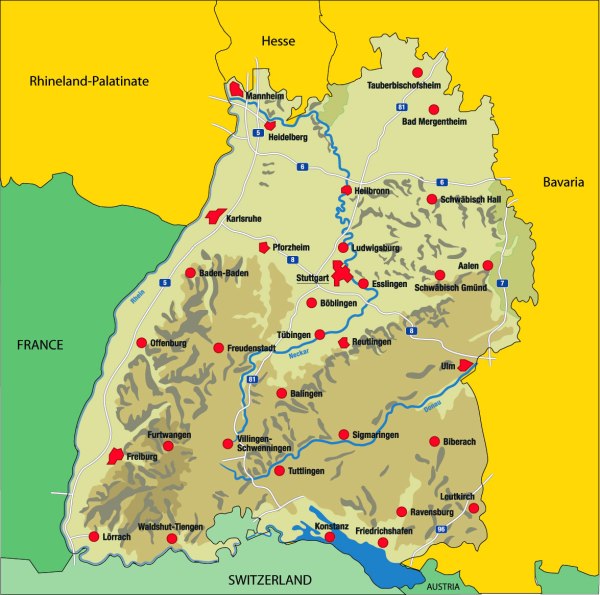
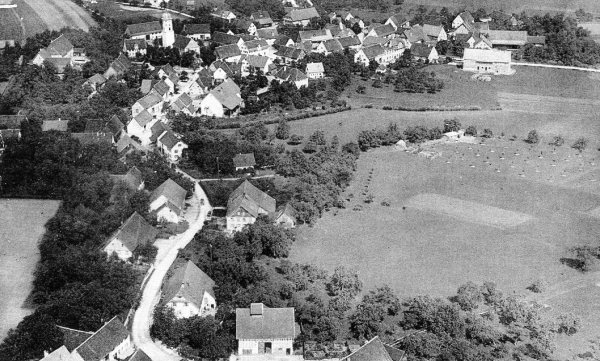


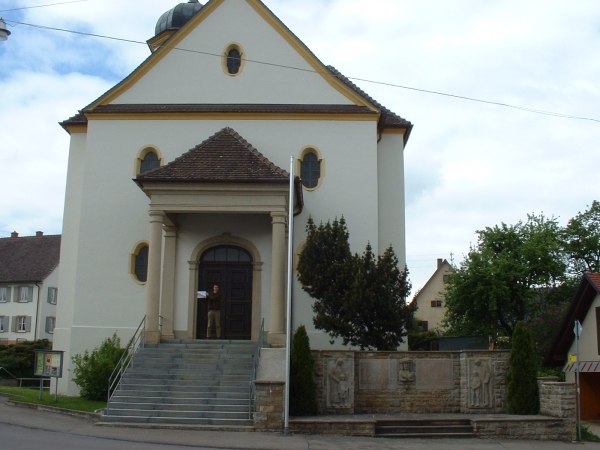
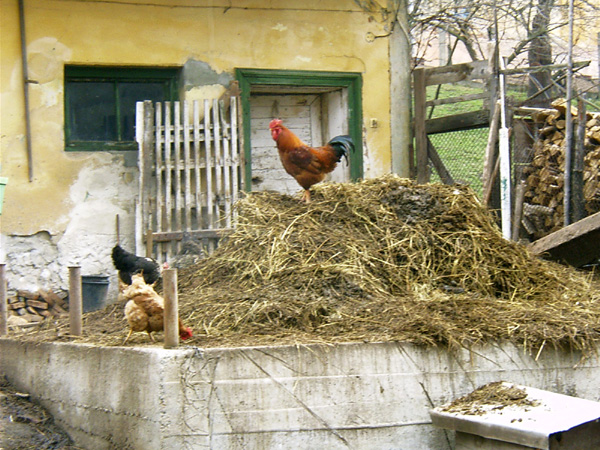
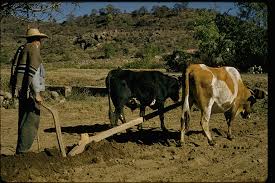
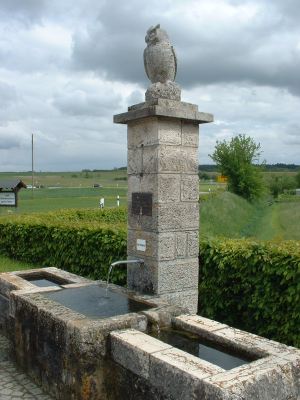
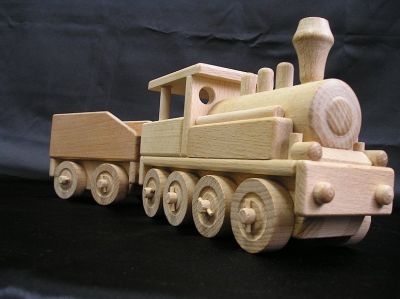
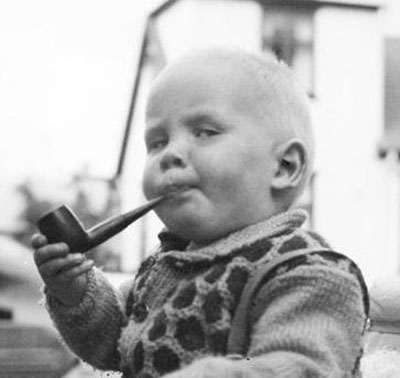
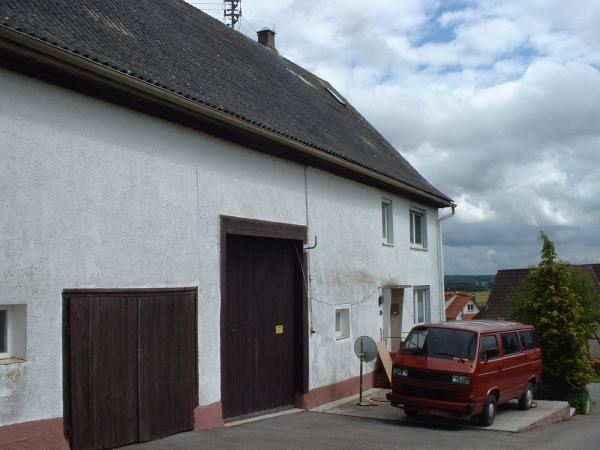
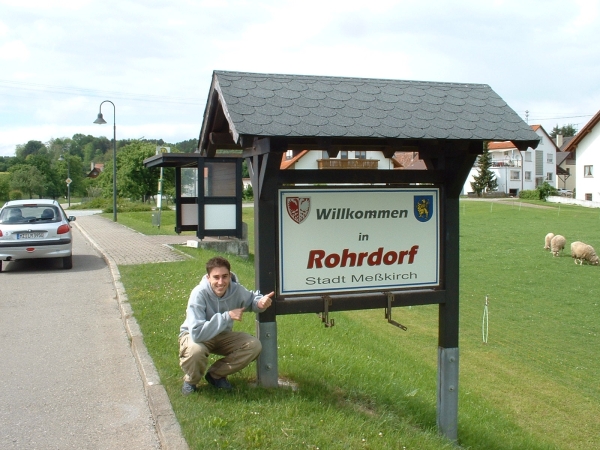
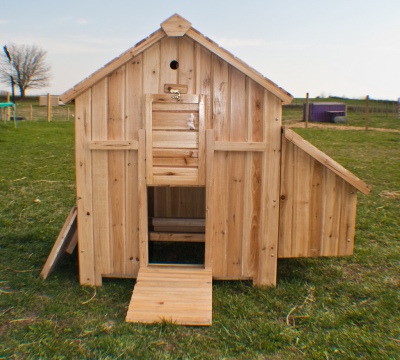


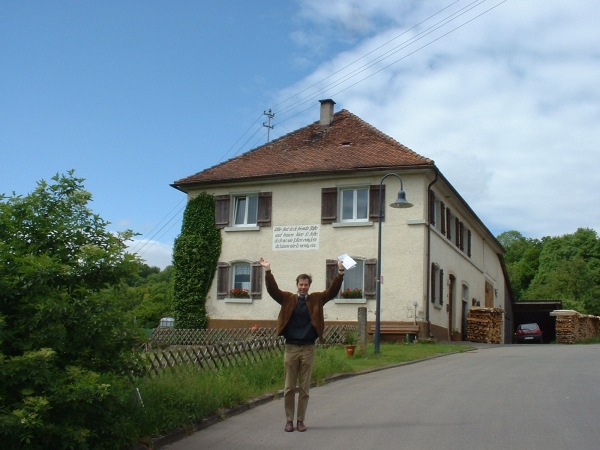
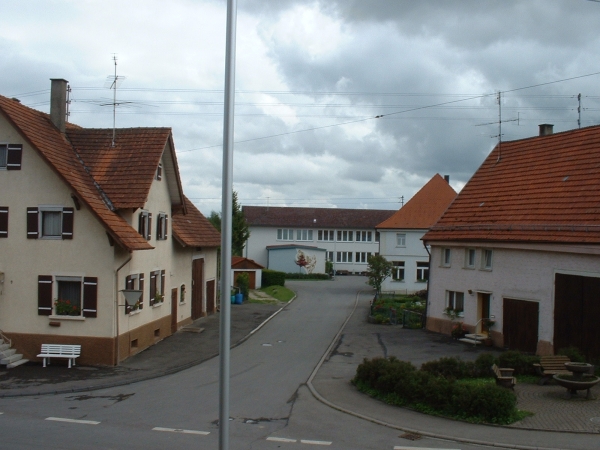
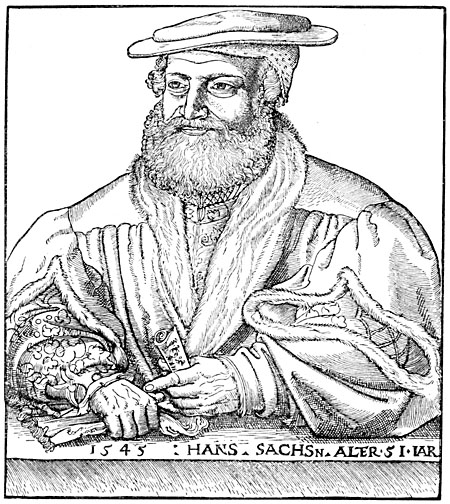
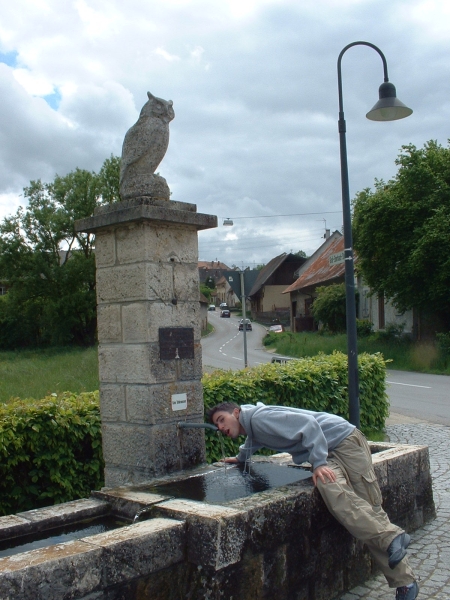
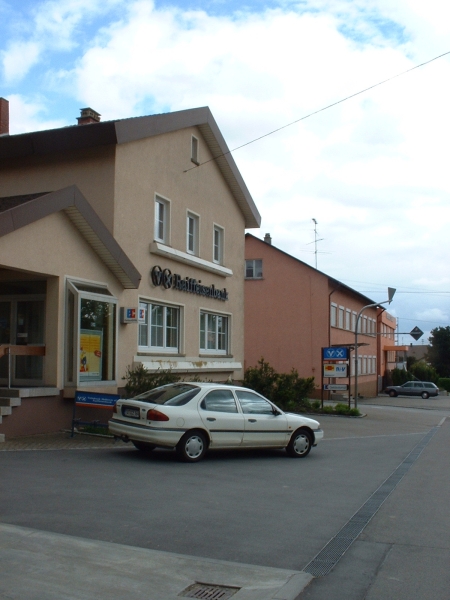
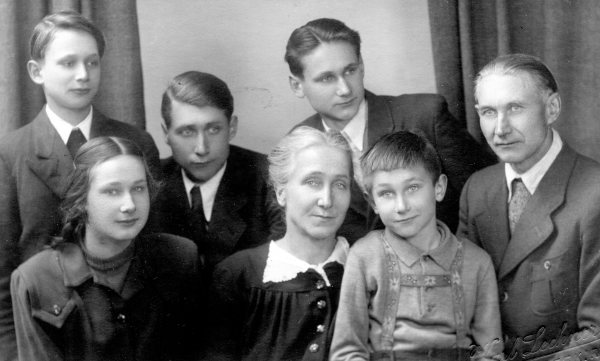

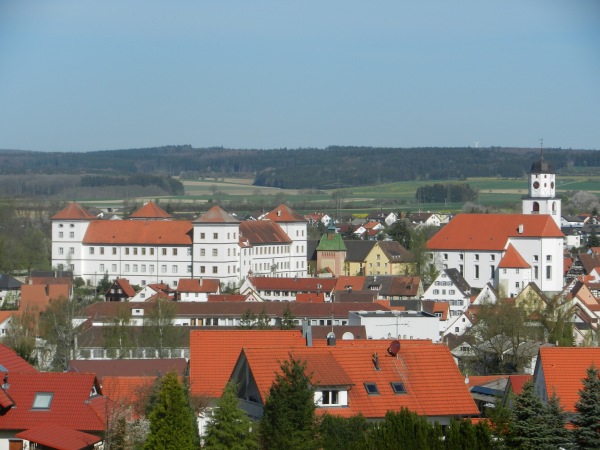
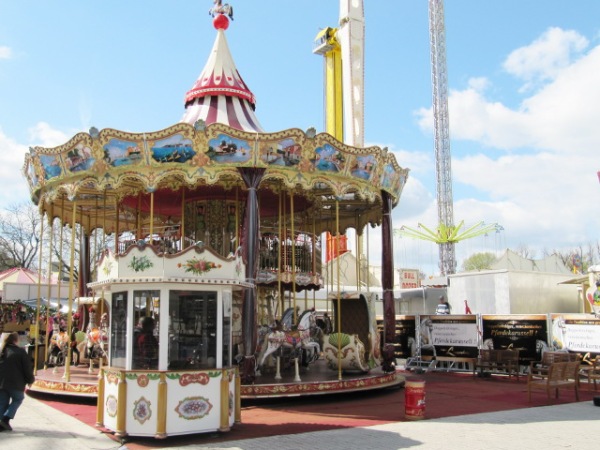
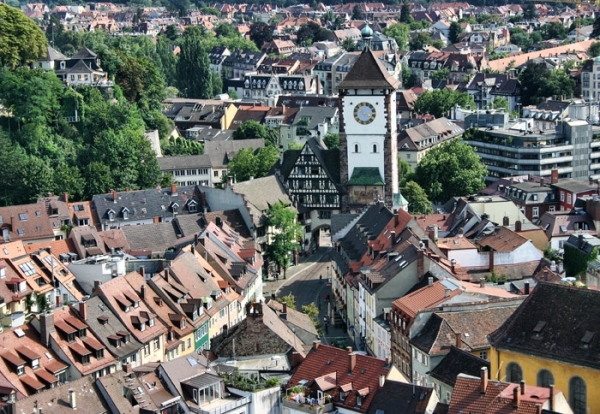
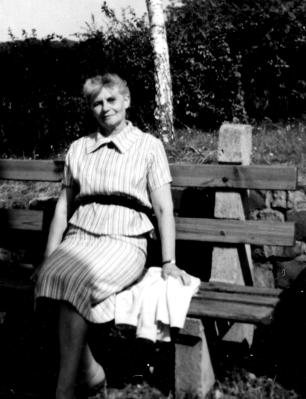
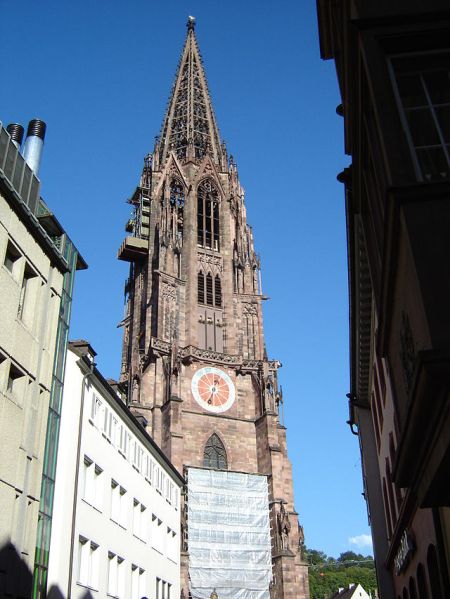
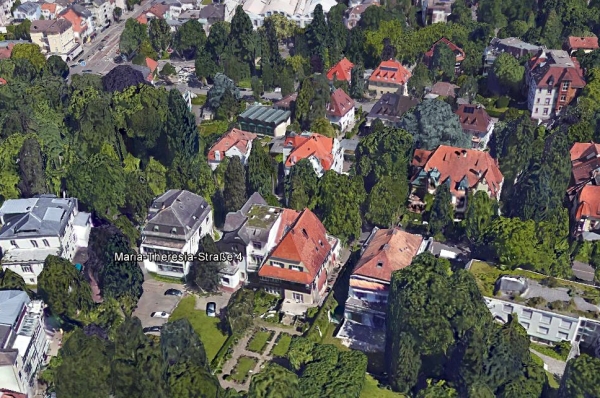

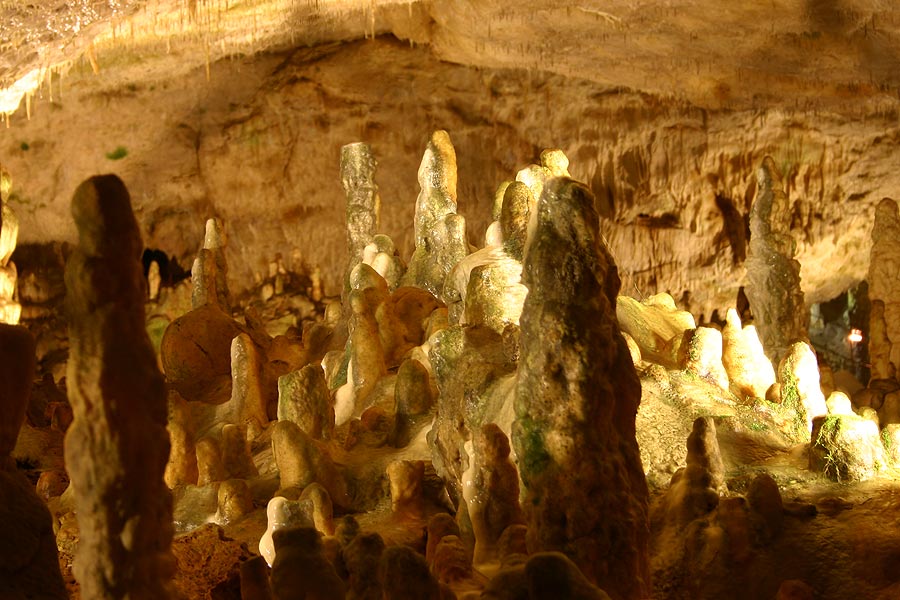
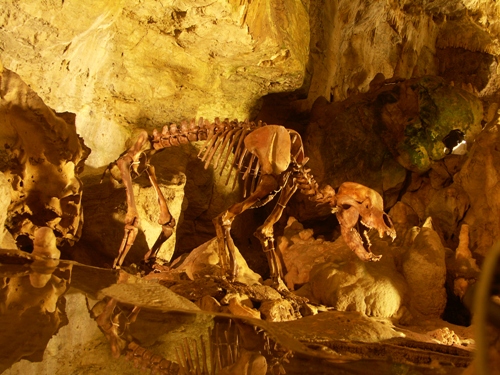

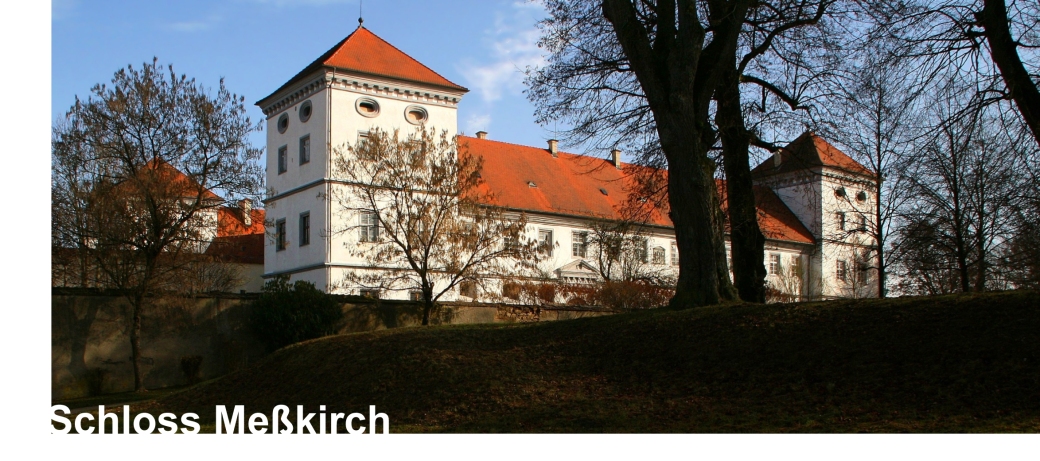
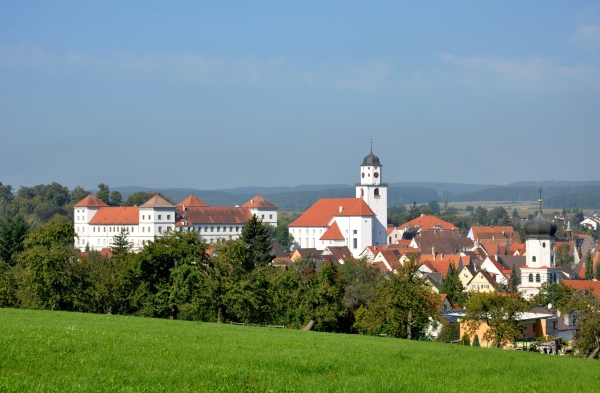
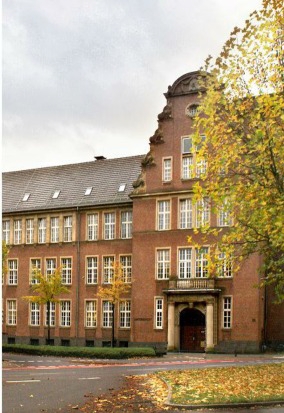
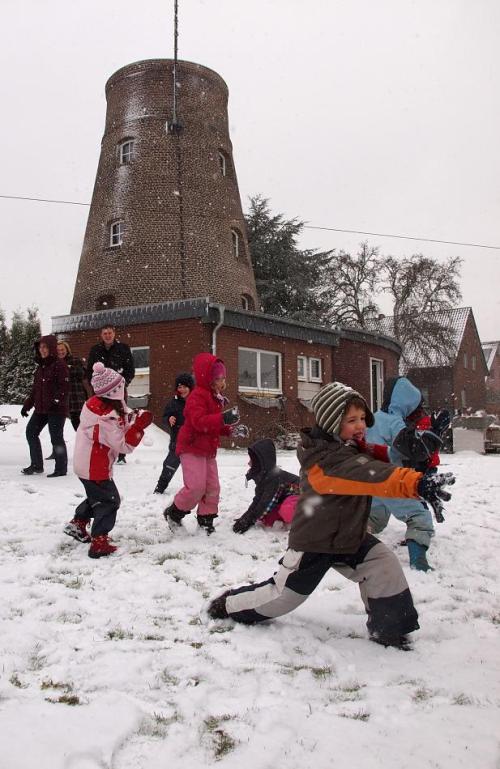
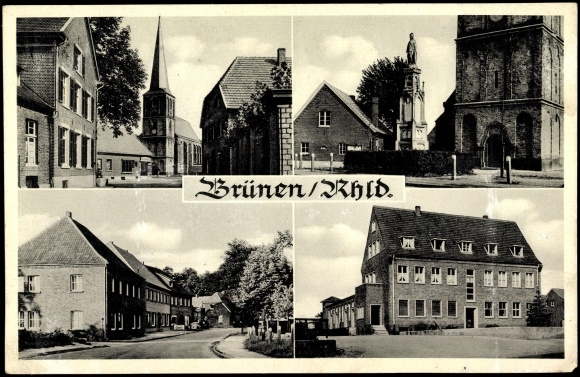
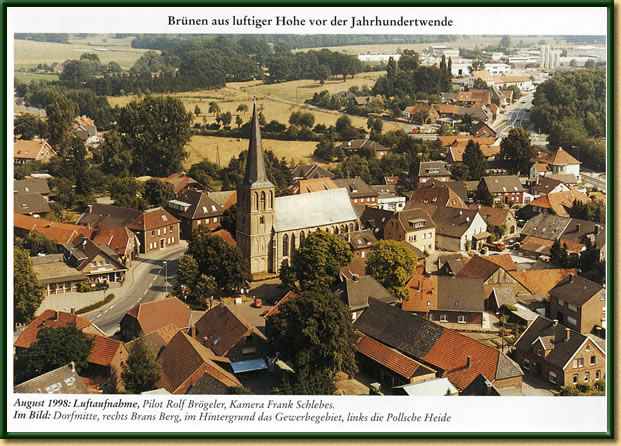
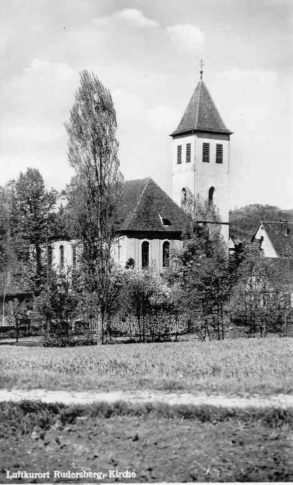
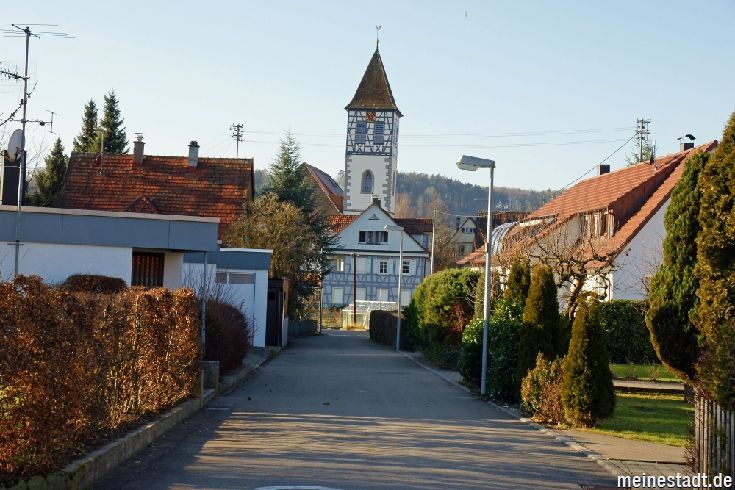
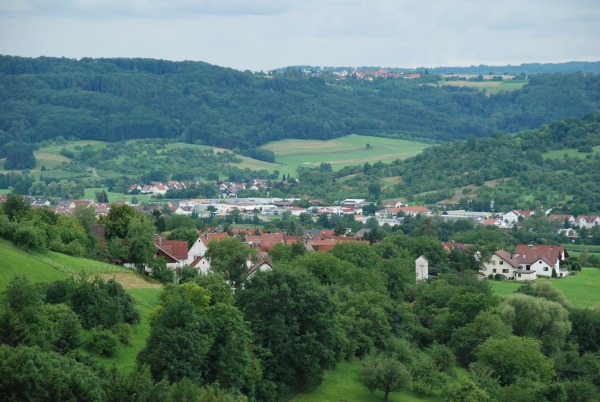
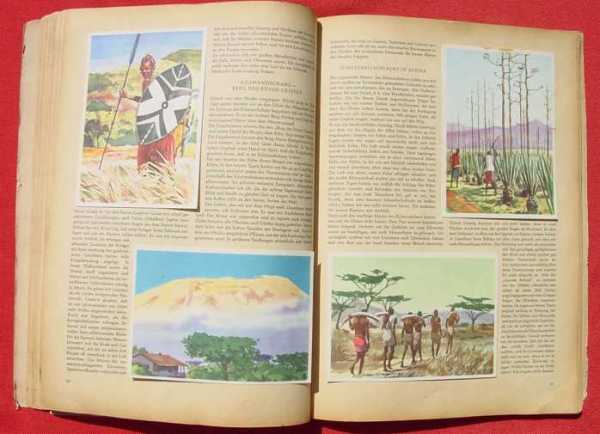

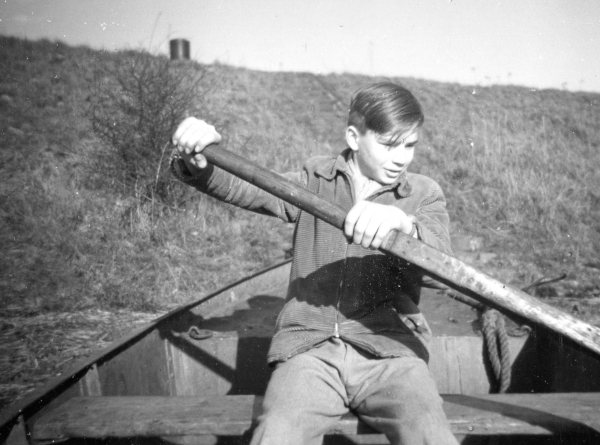

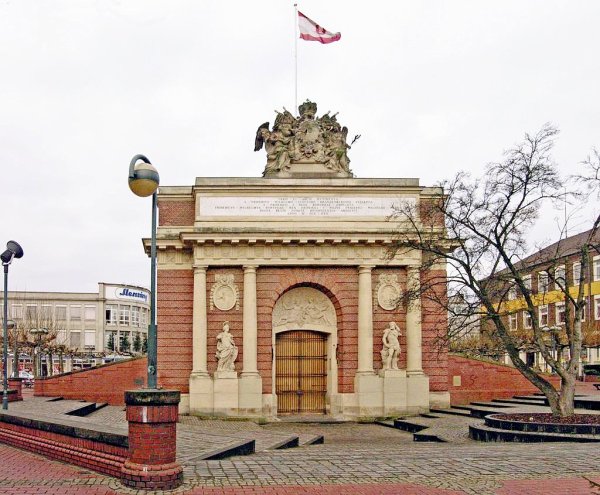
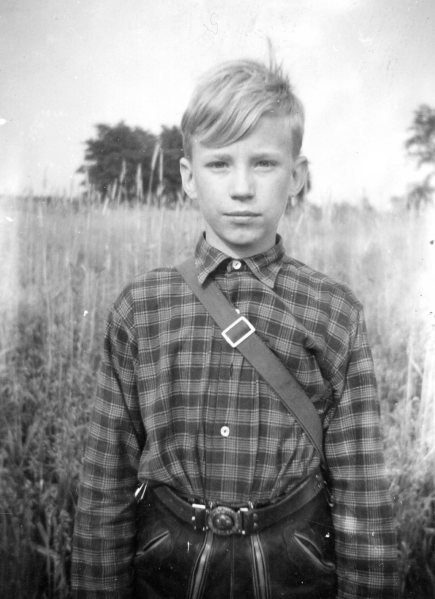
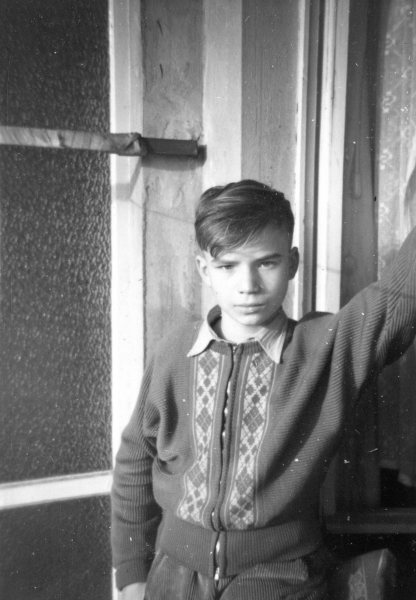
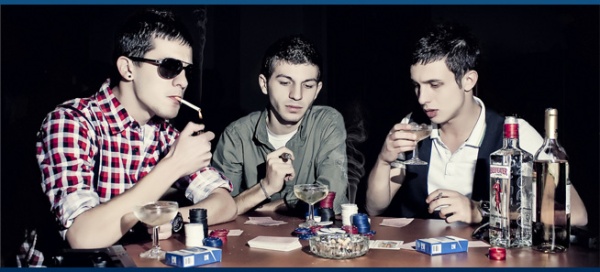

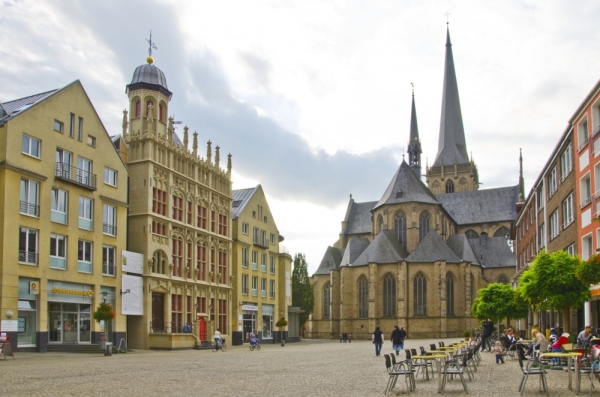






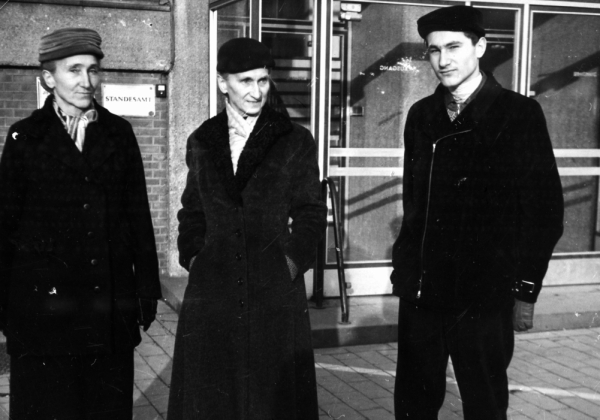
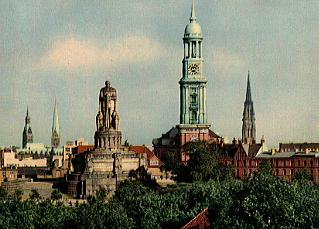
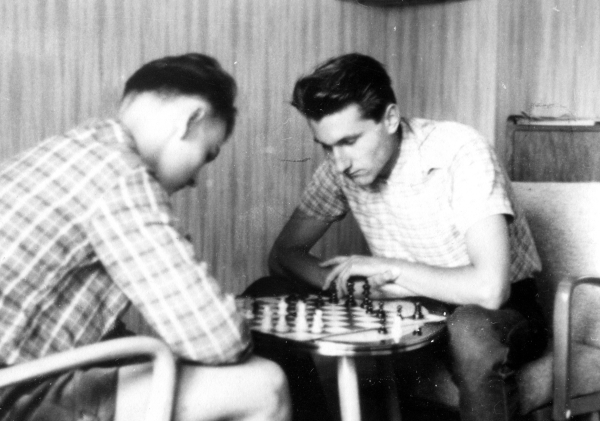
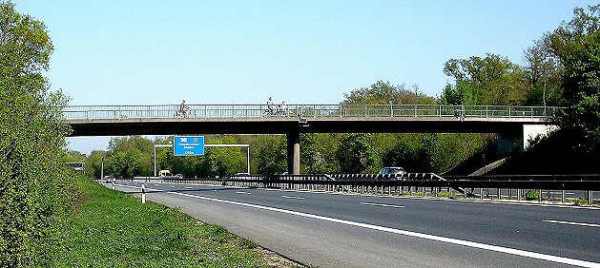
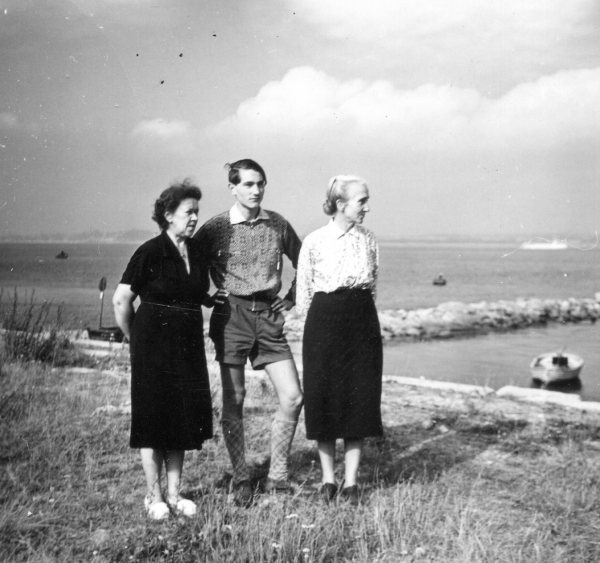
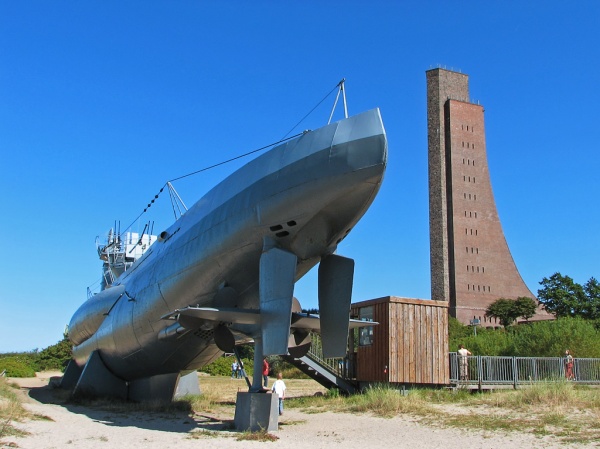
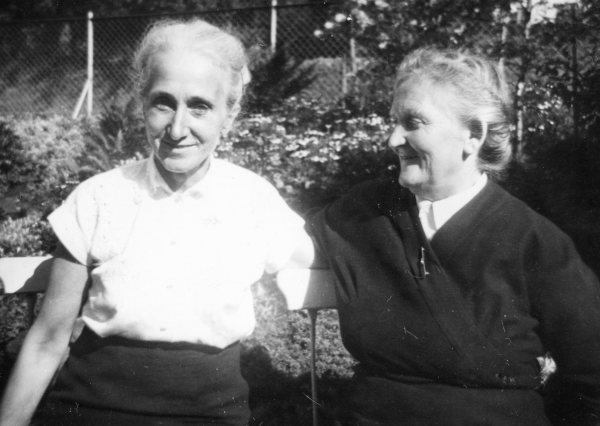
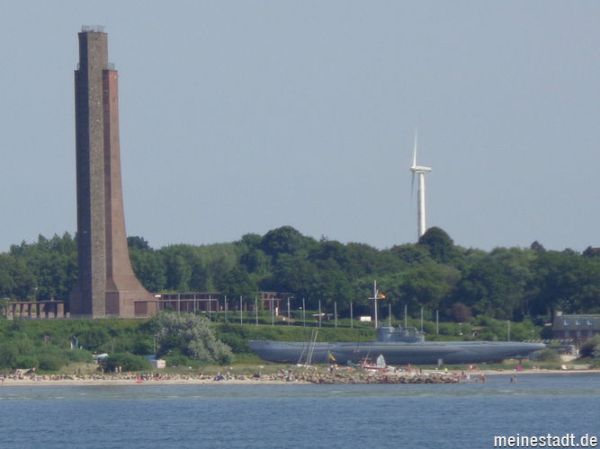
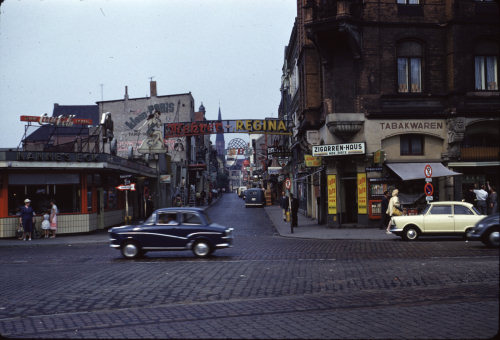

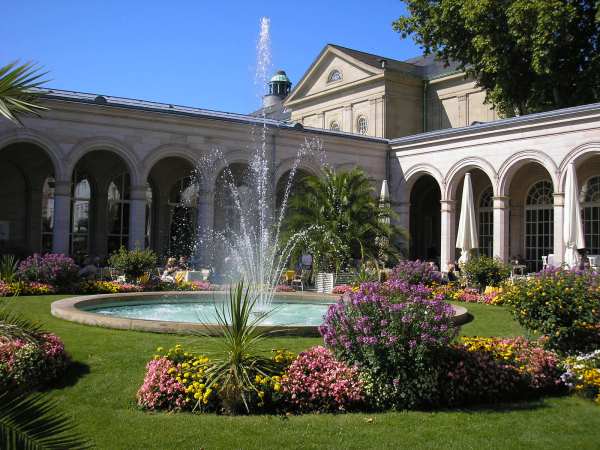
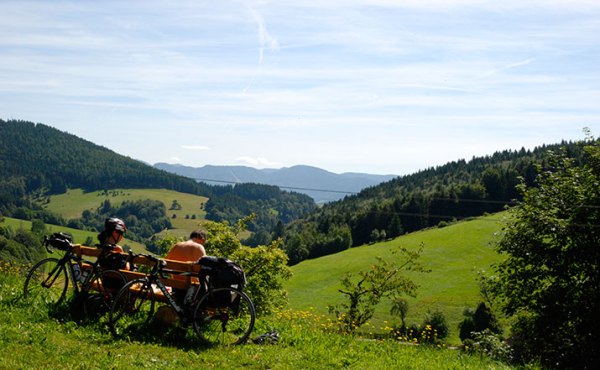
I’ve only read the first chapter of this section today. Your childhood in the Poorhouse sounds so trying in many ways—hard to imagine a little boy begging for food, but sadly we know it still happens in many places. But there also appears to have been some joy with your family—the story of learning to ride a bike (even with a scary fall) reveals that you and your siblings were quite close. In fact, that permeates the whole chapter—how close your family was. The Christmas train also is evidence of the love shared by your family.
I look forward to reading the next chapter when I have a chance.
LikeLike
I think that Grandpa Lehmann really overreacted in a terrible way. What an awful thing to say to a young boy!
And I did enjoy the egg story! I wonder whether in some ways your father overreacted also—did you really know that what you were doing was wrong? Or did you just think you were being clever? Today caning a young child would not be regarded well at all!
Times have changed for sure. I think we all learned some important lessons the hard way as children, but I think perhaps the adults didn’t always react in the best ways either.
LikeLiked by 1 person
I believe that deep down a child knows when his/her actions are wrong. Why would I hide the fact that I was selling those much needed eggs? You are right, times have changed. But looking back at my own life I have no ill feelings toward my dad and other people for the punishment I received for my misbehaviour.
By the way, I feel deeply touched and honoured that you take the time reading my early child stories, Amy.
LikeLiked by 1 person
I am really enjoying them. We grew up in different countries and cultures, but there is always something universal about childhood.
And you know better than anyone what was going on in your young but devious little mind! 🙂
LikeLiked by 1 person
So true! I was quite a little rascal.
LikeLiked by 1 person
Your sledding story stirred up very old memories of my own. When I was a child, we lived on a street with ten houses on each side of the street. The land was one big hill that had once been part of a large estate and developed in the 1950s into twenty small lots. The street ran through the middle of the hill, and so each house was on a hill, but the bottom half of the street had yards that were steeper. So we would sled down those hills. One year the snow became very hard-packed, as you described, and it was very scary and exciting. But fortunately for us, no one was injured! Your experience sounds terrifying! And I have to wonder what would have happened if you’d gone straight. Would your friends have managed to jump out of the way in time? Would the injuries have been as bad as yours?
LikeLiked by 1 person
I am deeply touched that you can draw so much enjoyment out of these old childhood memories of mine, but most importantly can re-experience some of your childhood events. Thank you so much for your kind comment, Amy!
LikeLiked by 1 person
There is something universal about childhood—regardless of when or where we grew up.
LikeLiked by 1 person
You were obviously quite a creative child—plays, music, and a failed chocolate business! I did chuckle at that one. When I was about ten my friends and i decided to write a newspaper about the people on our street. It was mostly harmless stuff. We walked door to door on our street, selling each copy for a nickel. But when our mothers saw what we had written, they were horrified to see that we had made a negative statement about the condition of someone’s lawn (actually what we said was that the new owners had improved the lawn that had been a mess when the prior owners lived there). They made us go back door to door and give back the nickels and collect the papers. That was the end of my career as an entrepreneur!
LikeLiked by 1 person
How sad to have the mothers nip a brilliant and creative business idea in the bud! I am sure you and your friends were quite disappointed.
LikeLiked by 1 person
We were mostly embarrassed and guilt-ridden. We never intended to hurt anyone’s feelings—we thought we were praising the new owners! But although I never started another business, I did continue writing—as you know!
LikeLiked by 1 person
You spoke about the tiered German educational system in the past tense—isn’t it still the case that only those chosen to go on to a university education have that option and others do not? It is so foreign to American ideas that I find it very unfair, but then I’ve seen too many young people waste their years in college so I can understand the advantages as well.
I don’t think Herr Stoll is someone I would remember fondly—no one should slap a child that way. Did you ever tell your parents? What did you feel about it then? Do you feel the same way now?
LikeLiked by 1 person
The school system has changed a lot since I attended high school. It follows to some degree the American model and avoids the pitfalls of the former elitist selection method.
As to Mr. Stoll’s beating, it was truly a traumatic experience, which I kept to myself. My question is how his son developed in such punitive atmosphere. I once googled the Stoll carpentry shop in Messkirch. It still exists. His son must have taken over the business, which now specialized in the making of coffins. Thanks for your caring comment, Amy.
LikeLiked by 1 person
I hope the son learned not to repeat his father’s mistakes. Thanks for responding, Peter.
LikeLiked by 1 person
It is heartbreaking to read about the abuse you endured in the Stoll household. I am glad you had that summer reprieve with your aunt and the French girl. And I hope that when I read the next chapter that somehow you managed to escape from such a dreadful household.
And who hasn’t ever overdone it with peaches!
LikeLiked by 1 person
I believe that the yearning for emotional warmth and the search for true love can be traced back to this tragical time period in my life. I was not an easy boy to deal with, but their child rearing methods were by today’s standards atrocious. Oh yes, the peaches were delicious. Have a great day, Amy!
LikeLiked by 1 person
You, too, Peter!
LikeLike
Reading about Leni and then your adventure with the girl in town, I realize how much more innocent twelve year old boys were back then than they are today. It’s a shame children cannot be so innocent for as long any more.
LikeLiked by 1 person
I agree with you 100%, Amy. Children today are dragged too quickly into the adult world and no longer enjoy the way we did those precious childhood years.
LikeLiked by 1 person